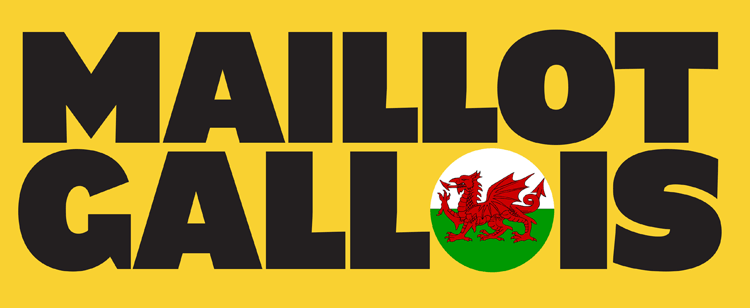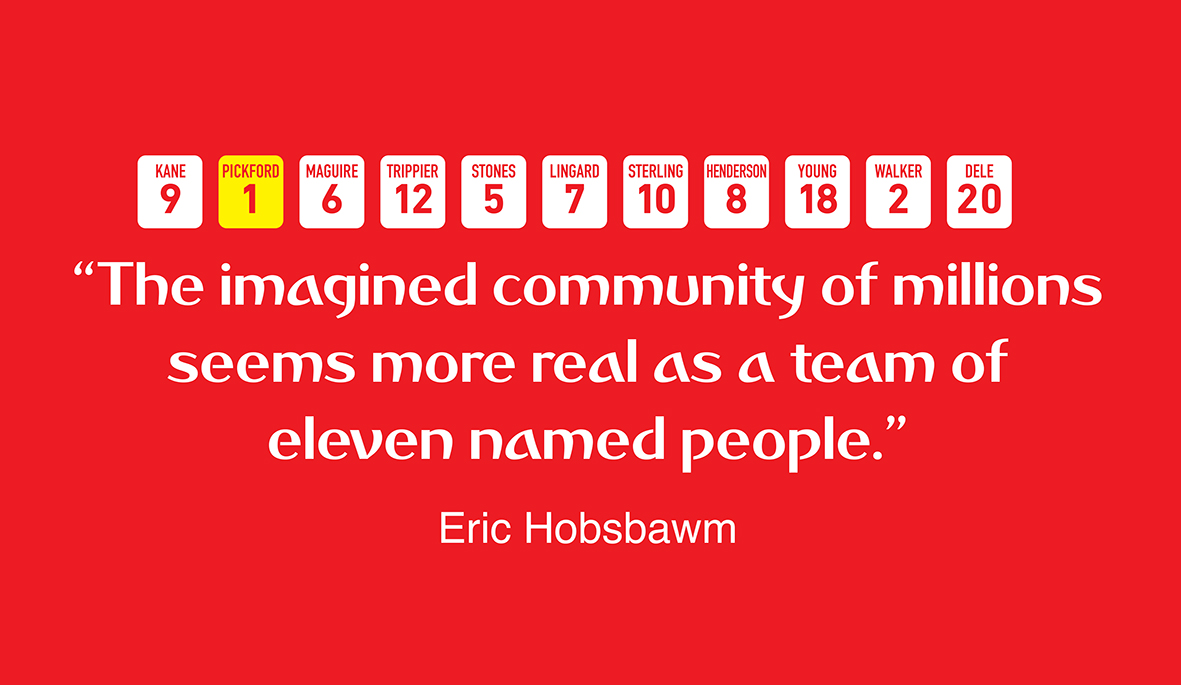
Liberté, Egalité, Velocité
06.07.2019
Juillet, the month of Le Tour and Bastille Day too . Mark Perryman offers up a 5-point transitional programme for a cycling revolution
July, the month when since 2012 first Wiggins, then Froome, last year Thomas turn Le Maillot Jaune into Le Maillot Britannique. Or in Thomas’ case Le Maillot Gallois. And off the back of this a surge in riding our bicycles rather than simply watching the excellent TV coverage on ITV4, or not. According to the latest figures Department for Transport’s figures only 6% of the UK population cycle at least once a month, just 1% of primary school children cycle to school, a mere 3% of secondary school children, and compared to Europe we remain the third lowest of daily cyclists, at 4%, only Cyprus (2%) and Malta (1%) get on their bikes less than the Brits.
Once again the myth that elite success, Le Tour, Team GB’s hatful of gold medals in the Olympic Velodrome, the cycling world championships coming to Yorkshire in the autumn, is proved to have next to no impact on increasing participation. Yet cycling not only helps generate a healthier population by getting us out of our cars (the same data revealed that the average length of a car journey is 8.5 miles) we can help alleviate urban air pollution, reduce reliance on fossil fuels and decarbonise the economy. Le Maillot Jaune won’t achieve any of this, La Révolution might. It was Trotsky who once offered up a ‘transitional programme’ from capitalism to socialism, mine is a tad more modest from four wheels, to two.
1. No VAT on Bikes
A signature move would be to remove VAT on bicycles. A 20% reduction across the board on the price of a bike, anything from £200 upwards, isn’t to be sniffed at, and uses tax gathering as a tool to actively shape lifestyles. Something that will be required more and more by any government seriously committed to a sustainable economic strategy.
2. Socially Useful Bicycle Production
In the past few years there has been a spate of car factory closures. This is unlikely to slow down, consumer habits are changing, sadly its not that car-drivers are driving less, it’s that they’re driving existing models for longer. The urgent need to upgrade every couple of years is coming to an end. And electricity is coming to replace the petrol in the tank. Good, but where does the electricity come from? If not renewables while pollution may be reduced, the impact on climate change much less so (same applies to E-bikes). Those factories could be taken over by the state. Used to churn out cheap but well-made bikes. Rather than front-wheel suspension, which is entirely unnecessary for the vast majority of journeys. Lightweight steel is what improves the quality of any ride. Focus on this for a line of nationalised, not-for profit children’s and adults’ bikes. Those centres of car manufacture are unlikely ever to recover, certainly not on the scale they once had, but what if they became centres of bike manufacture?
3. Bicycles on trains
Eight and a half miles isn’t a bad standard to aim at. Of course many car journeys are considerably less, there’s no need to aspire to Le Tour standards straightaway. Most of us, depending on any hills getting in the way, could do those 8.5 miles in well under an hour. In big cities that will be quicker than by bus, and no wait for the next train either. But for some the journey to work is considerably longer. Why then does commuting by train actively discriminate against those who’d take a bike to complete the journey? The only ones permitted the expensive ‘2ndbike’ option, the fold-away. And at the weekends its no better, a ride in the country for city-dwellers made all the more difficult because the train ride to get there has next to no space for bikes. None of this applies on the continent where it is not uncommon to find entire carriages given over to cyclists and their bikes. What new train design in the UK has even begun to address this? The answer is the total opposite with ever-decreasing provision for carrying bikes, madness, both commercially and for the environment.
4. A bike shed for every workplace
OK, 8.5 miles is going to leave most of us a tad sweaty. If of the all-weather cycling variety quite possibly soaking wet and caked in mud too. No way to start the working day. Every workplace needs to be kitted out with a bike shed, changing room, showers. Central and local government should set the example in their offices, but tokenism isn’t enough. Instil this in planning regulations for new workplace builds, interest-free grants for all existing workplaces to add this provision.
5. The cyclists’ road to socialism
In the early years of socialism ‘Clarion Clubs’ of socialist cyclists would take body, soul and the message for change from city to countryside. A late 1980s version was the annual Oxford to London Nicaragua Solidarity bike ride that thousands would take part in every year. Despite the supposed frailty of Jeremy Corbyn being challenged by pictures of his regular Islington to Westminster, 4.5 miles according to my road map, cycle-commute, it is a culture largely absent from the Left nowadays. Yet mass cycling has the potential to provide the means and confidence to generate the day-to-day ride as a matter of course. Such events are hugely popular, organised by commercial outfits for the major charities. But these re nothing more than a day out, entirely disconnected to any ambition to transform the way we live our lives and consume the world’s ever-decreasing resources. A left cycling culture could help generate instead what the writer Lynne Segal has described as moments of ‘collective joy’ a day out yes, but with a world, not just a wheel, to change too.
I could add of course safer cycle ways and paths. These are certainly needed, fear remains a major impediment to the revolutionary growth in cycling to our individual and collective benefit I am advocating. Yet the overwhelming emphasis on this, to little or no substantial change, serves only to produce a self-fulfilling prophecy. If it’s that dangerous, which it isn’t, and nothing is being done about it, which it hasn’t, why bother? Like any decent manifesto for a revolution mine is the advocacy therefore of hope, not despair.
Liberté? Yes. Egalité? Of course. Velocité? Why not. Driven not by profit or an economic system driving our planet to destruction but by ourselves. A Révolution in anybody’s language.
Mark Perryman is an active cyclist and co-founder of the self-styled ‘sporting outfitters of intellectual distinction’ aka Philosophy Football. Out just in time for Le Tour our Liberté, Egalité, Velocité T-shirt is available from here.
The Never-Ending Season
14.05.19
As one sport’s contest approach its climax another has barely begun Philosophy Football’s Mark Perryman reviews summer books for those who measure their years out in seasons not months.
The summer beckons. The Carabao, or those of us a tad old skool, League Cup Final is long gone. The FA Cup in association with wotsit airlines has had its Final too, ditto the Champions and Rich Runners Up league too. Up and down the divisions clubs have jostled their way to win promotion, staved off relegation or clung on to mid-table mediocrity. And for the few, not the many, the Premier League title. Before you know it, all this will be done n’ dusted ready for it to begin all over again, the 2019/20 edition. What better time therefore to reflect on the modern meaning of our much-fabled People’s Game? For a comic-strip insight mixing fine art with bittersweet commentary there’s none better than David Squires. David’s strips, 2014-2018 handily now collected in one very tasty volume Goalless Draws. Stuart Roy Clarke likewise takes a visual approach to locating the lost meaning of football, this time tho’ via a photography that he has made his own under the rubric ‘homes of football’. Stuart’s latest collection The Game combines the finest photographic record of the changes in football, with a superb accompanying text from the one of the founders of football’s academia, John Williams. Together they make for a superlative double act. Part of Stuart and John’s argument, and the appeal of their book, is that there really is no substitute for ‘being there’. This is an experience that has changed markedly since the ’89 Hilsborough tragedy, a moment caught most poignantly by David Cain’s book-length poem Truth Street. For the most part those changes have been for the better but no one can pretend that ‘being there’ is the same any more as it once was. A point expertly made by Duncan Hamilton in his new book Going to the Match a journey to games which confirms that despite all the worst efforts of corporate homogeneity the proverbial wind and the rain of 90 plus minutes in the stands cannot be beaten. What the modern ‘matchday experience’ (ugh!) has become is the effort to convert our fandom from active participants to passive consumers. Dave Roberts is having none of that in Home and Away he travels round non-league football to find a game largely untouched by the trappings of what has become disapprovingly known as ‘Mod£rn Football.’

For those who can afford the time, and the expense (though with a bit of careful pre-planning these trips can be surprisingly cheap) another way of escaping how our domestic game is consumed can be via a European away weekend. For an excellent starting point towards choosing such a trip read Neil Frederik Jensen’s Mittel and discover the appeal of heading off to see a game in Hungary, Poland, the Czech Republic and elsewhere. A more familiar trip would of course be to La Liga or the Bundesliga. For the former pack a copy of Jonathan Wilson’s latest, The Barcelona Legacy in which Jonathan provides his now customary digest of tactics to better understand the game unfolding before our eyes. And for Germany, take with you Uli Hesse’s Building the Yellow Wall for a superb account of this most idiosyncratic of clubs, not least because this was where Jurgen Klopp learnt his managerial trade and Jadon Sancho is currently building his formidable playing career. But of course the biggest, and proved to be the best, away trip of the past twelve months has to be the one those lucky England fans made to World Cup 2018, bringing home England’s first World Cup semi-final appearance in 28 years for their troubles. In How Football (Nearly) Came Home Barney Ronay tells the full, and unforgettable story of that glorious English summer of football, if the wait is as long as it was from the previous one at least we’ll have a classic read that stands comparison with Italia 90’s All Played Out by Pete Davies to savour in the meantime. Of course some football destinations are more welcoming than others. That’s not to say fans shouldn’t take the risk of being pleasantly surprised. Andrew Hodges helps readers towards that happy outcome by unpicking the more complex reality behind the fearsome reputation of Croatian football in Fan Activism, Protest and Politics: Ultras in Post-Socialist Croatia.

Closer to home Michael Calvin has an unrivalled reputation for chronicling football’s pluses, and all too many minuses, via a series of award-winning books. His latest State of Play ranges over stories of players, managers and clubs to create the kind picture of English football that rarely makes it on to the back pages yet is way more important than who scored what against whom. Joshua Robinson and Jonathan Clegg’s The Club doesn’t have much doubt what has caused the perversion of the sport, the unseemly wealth and disruptive influence of The Premier League.
The latest edition of Soccernomics by Simon Kuper and Stefan Szymanski provides a highly accessible, and entertaining, framework to understand the Premier League’s evolution. Or for an unashamedly radical deconstruction of the entire edifice Gabriel Kuhn’s Soccer vs The State, also now available in a new edition, should satisfy all who harbour such an ambition. If on the other hand the preference is for an alternative universe of football then David Wardale’s Wasting Your Wildcard is a hugely entertaining , not to mention indispensable, guide to that mid 1990s throwback, Fantasy Football, and I add that historical footnote writing as the co-founder of another football-inclined mid-1990s throwback!
Football, fantasy, philosophy, Mod£rn or any other version has of course become an almost entirely sedentary pastime. A national obsession divorced from any kind of desire to physically partake in it as a sport. Football more than any other sport demolishes the role model / emulation model. If the Premier League or an England World Cup run can’t get the nation off our sofas what hope for any other sport? The exception, for a while at least, has been cycling. Although of late even this seems to have levelled off at best, or more likely declined. Cycling’s temporary success in boosting numbers on two wheels coincided with unprecedented British cyclists’ success at both the Olympics and Le Tour. How to Ride a Bike by Chris Hoy handily combines both, all the glamour of a six-time Olympic Gold Medallist with a how-to-guide for those who’d like to cycle both further and faster.
Unfortunately, however closely we follow Chris’s helpful hints only a tiny minority of us will ever reach the kind of speed, uphill and downhill, catalogued in The Cycling Podcast by Richard Moore, Lionel Birnie and Daniel Friebe who are as much a joy to read as their podcast was to listen to. Of course there’s not much doubt what was the highlight of cycling’s 2018, Geraint Thomas surprising everybody, not least himself by winning Le Tour, a story he retells in his own inimitable way The Tour According to G

Meanwhile for those of who still hanker after two-wheeled speed and endurance Peter Cossins has written the near perfect book Full Gas in which Peter seeks to instruct mere mortals in the tactics of the peloton. If we cannot dream, well what exactly is the point of doing, or watching sport?
As the sporting summer fast approaches there’s plenty of contenders for the stand out event. A home cricket world cup? The women’s football world cup? The debut of the UEFA nations leagues semis and final. Another home world cup, netball? In years gone by an Ashes summer would have seen off the lot of them but not anymore since the disastrous decision to sell live and free-to-watch test cricket to the satellite TV moneymen. And cricket has its own problems as a sport too, Australia’s fall from grace via a ball tampering scandal brilliantly chronicled by Geoff Lemon in his Steve Smith’s Men.
And then there’s the Rugby World Cup in the autumn to look forward to. A first, hosted by Japan, instead of one of the ‘traditional’ rugby nations, however the sport’s globalisation, like cricket’s, remains faltering at best. A world cup model adopted to ape football for commercial, reasons but lacking any cultural ambition to truly spread the game. Perhaps rugby’s bigwigs should read Stuart Barnes’ full-on rugby memoir Sketches from Memory to remind themselves of what the sport at its best has to offer the world.
Golf has its own version of globalisation, the Ryder Cup surely the only sporting event with a team competing under the EU flag, but what will happen with GB golfers in Europe’s side flying that flag post-brexit? Tiger Woods is the one golfer of the current era to reach beyond the sport’s core support to spur some kind of revival of interest, his April 2019 win at the Masters absolute testament to that. A hugely talented but much troubled figure Jeff Benedict and Armen Keteyian’s unauthorised biography Tiger Woods helps untangle the reason for why Tiger is, and remains, a figure who towers above his sport..
Wimbledon fortnight provides a sudden burst of interest in tennis. Apart from that it’s down there with the also-rans. Gregory Howe’s Chasing Points is a welcome insight therefore into the pro-tennis tour as players scramble points to climb up the rankings. A revelation, it helps to put the world of All England’s SW wotsit into some kind of perspective.
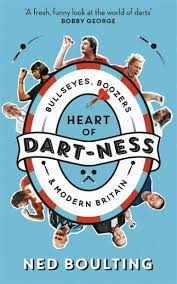
But for a sport on the up, look no further than darts. The rise and rise hilariously chronicled by the always brilliant Ned Boulting in his new book Heart of Dart-Ness. Bullseyes, the pub game, a packed Ally Pally, world champions, and those garish shirts, Ned’s book has the lot, and then some
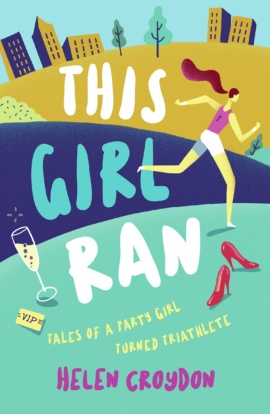
Darts is a sport just about anyone can play. OK there might not be as many pubs with a handy dartboard as there once were but this kind of accessibility still provides darts with its instant appeal, to take part. Too many sports don’t have that whilst others despite the appeal of so-called ‘role models’ never had it in the first place. Helen Croydon’s This Girl Ran provides the kind of inspiration, in shedloads rather than the odd spoonful, to get off our collective sofa and enjoy the doing , rather than the watching, of sport. Helen’s tale takes this to extremes, the triathlon, but the maxim remains pertinent, we can all run. Bump, Bike & Baby by Moire O’Sullivan takes this how-to philosophy to another level, combining pregnancy, parenthood and ultra-endurance adventure racing. Remarkably she proves the combination is not only possible but desirable. The latter may not be the response of too many readers but the very fact that Moira survives to tell her tale could just prove sufficient inspiration for others to follow in her footsteps, just not quite as many.
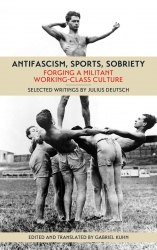
Of course, most won’t. This has precious little to do with individual choices, rather it is down to the social construction of sport. Vikki Krane’s Sex, Gender and Sexuality in Sport is as near as we’re ever likely to get to a comprehensive analysis of just one dimension of the exclusions sport both produces and reproduces. There are, unfortunately, plenty more. Despite this, it is rare indeed to find any kind of politics that takes this seriously. Gabriel Kuhn has done an excellent job, therefore, rediscovering and translating from the 1930’s Julius Deutsch’s writings Antifascism, Sports, Sobriety for a model of the possible.
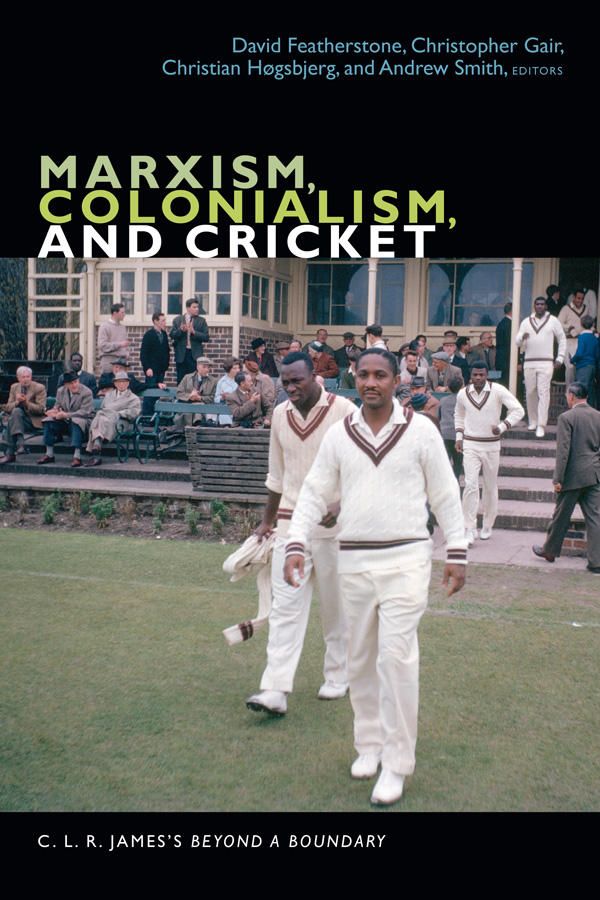
But one writer, and political activist, above all others effortlessly made the connections that others either struggle with, or dismiss entirely. In his classic work Beyond a Boundary, pan-african, marxist and cricket-lover CLR James asks the rhetorical question ‘ What do they know of cricket who only cricket know?’ The same question could be asked, and answered for each and every other sport too. My pick of the quarter therefore is Marxism, Colonialism and Cricket. No, not your common or garden title for the most outstanding sports book of 2019, to date, perhaps that’s the problem? But what the editors David Featherstone, Chistopher Gair, Christian Høgsberg and Andrew Smith have achieved is truly special mixing James’ personal and political lifestory, the context of cricket in the West Indies, the past, present and future of cricket writing. Superb, just the read whilst that old imperial encounter, The Ashes, seeks to nudge the Premier League’s off season from the back pages this sporting summer.
Mark Perryman is the co-founder of the self-styled ‘sporting outfitters of intellectual distinction’ aka Philosophy Football.
The Making of a Two Tone Nation
09.03.2019
40 years on Mark Perryman celebrates the debut release from The Specials
03.05.1979 Margaret Thatcher leads the Tories to a crushing General Election defeat of Labour. The next morning I pop into the small independent record shop tucked away by the platforms at Hull railway station to pick up the eagerly awaited debut single by The Specials, a double A-side with label mates The Selecter on the reverse. What an antidote.
For the preceding couple of years the National Front had threatened both a street-fighting and electoral breakthrough. The Anti Nazi League (ANL) mobilised in opposition everywhere they appeared to challenge the fascists’ ability to organise. The investigative magazine Searchlight exposed via fearless intelligence-gathering the neo-nazi origins of the NF’s leadership and key organisers. And most imaginatively of all Rock against Racism (RAR) via a mix of huge carnivals and local gigs had spread the message that the NF stood for ‘No Fun, No Freedom, No Future’ to drive a wedge between punk and its nihilistic appeal and the NF. Punk’s flirtation with the faux-shock value of the swastika and Nazi chic had until this kind of intervention all the potential to provide a useful base of support for the NF.
A fortnight before polling day the ANL had organised a massive protest outside an NF election rally provocatively sited in multicultural Southall and to be addressed by their wannabe Führer-in-Waiting, John Tyndall. The counter-demo was brutally policed by the notorious Special Patrol Group, so brutal that their actions resulted in the death of one demonstrator, Blair Peach.
The late 1970s were these kinds of dangerous times. When the ’79 General Election votes were counted the NF had been humiliated at the Ballot Box. Despite standing in seats from Accrington to York and most places in-between they barely topped 1% of the vote in these contests nationwide. Their best single result still only a measly 7.6% for Tyndall in Hackney South and Shoreditch. But the NF’s setback, however welcome, was less down to the reversal of their racism than its embrace by the more mainstream, Tory, right.
In January 1978 Thatcher had said in a set piece World in Action TV interview of immigration:
“By the end of the century there would be four million people of the new Commonwealth or Pakistan here. Now, that is an awful lot and I think it means that people are really rather afraid that this country might be rather swamped by people with a different culture and, you know, the British character has done so much for democracy, for law and done so much throughout the world that if there is any fear that it might be swamped people are going to react and be rather hostile to those coming in.”
Despite her qualifying these remarks elsewhere in the televised conversation the message was perfectly clear, Vote Conservative, stop the ‘swamping’ of ‘our’ culture, no need to vote NF because the Tories would be doing their job for them.
The Specials stood for an entirely different version of ‘this country’ to Thatcher’s. A 2 Tone nation celebrated via riotous gigs, frantic dancing, mixing up the anarchic energy of post punk with the original sound of Jamaica’s Prince Buster, Desmond Dekker, Harry J Allstars and others. Dressed up to the nines in tonic suits, loafers, button down collar shirts. A musical movement rooted in the hugely contradictory sub-culture of skinheads. Rocking against racism no longer simply a prescription rather the natural consequence of the sounds we loved, the multicultural places where Ska was being reinvented, Birmingham, Coventry and North London in particular, the bands we followed up and down the motorways to all points north, south, east and west.
Hull was as much affected by all this as anywhere else. The SWP had a bookshop on Spring Bank that had become pretty much the hub for a thriving local Rock against Racism scene. The Wellington Club, affectionately known as ‘The Welly’ to all who frequented it was a hotbed of punk, indy and post-punk. Both helped pull together a mainly young crowd who would fill coaches to stop the NF and British Movement wherever they threatened to march. One memorable excursion of this sort to protest against the Far Right’s favourite racist landlord, Robert Relf, then languishing in Winchester prison, left Hull past midnight so the music crowd could see Howard Devoto’s Magazine gig at the local FE College too. There was an uglier side to this mix tho’, pubs to avoid because they were well-known NF hangouts, a visit to the toilets there likely to end in a bloodied confrontation, they firebombed the bookshop too. Ska helped however mould the activism and the music into some sort of movement. The coolest kid in these parts was Roland, a diehard Clash fan, mixed race with a blonde rinse his nickname, before any of us knew any better, was ‘Guinness’ . His mum ran a second hand clothes shop, if we wanted the sixties ska look on the cheap her’s was the place to find a vintage bargain. And when Roland formed a ska band, The Akrilykz, it was the Communist Party who provided the lead guitar and drummer. Now that’s what I call a Popular Front. But it was on lead vocals that Roland provided a mesmerising presence, despite his moniker, personifying everything we believed in. His quietly understated voice soaring with the breathless melodies that a few years later he, Roland Gift, would bring to the Fine Young Cannibals.
Hull, up and down the country, on the road, 2 Tone and it’s offshoots rapidly became this kind of movement everywhere. Not in the conventional political sense, nor the gloriously disorganised effectiveness of RAR’s self-styled Militant Entertainment either. When the first Two Tone Tour reached Sheffield I joined it on a minibus from Hull. The dancehall was heaving, on the cusp of some kind of musical rebellion, threatening yet joyful at the same time. The notorious South Yorkshire police however suspected something untoward was afoot and tried to close the gig down. I’ll never forget Specials lead singer Terry Hall’s response. He bounded on stage, asked us all to sit down on the dancefloor and then to the senior police officer’s face led the entire audience in chorus after chorus of the ‘Harry Roberts Song’. Grudgingly, and knowing the alternative was likely to be a seriously wrecked venue in the face of this the police didn’t have much choice than allow the gig to proceed. 1-0 to 2 Tone.
Another unforgettable ’79 night was spent at Camden’s tiny Dingwalls nightclub. It was the evening of the first performance of Madness on Top of the Pops and to reward their loyal fans the band were playing live straight afters. I was one of the lucky few crammed in, packed shoulder to shoulder with British Movement skinheads. This was genuinely scary, my hair was short enough to pass muster, my politics certainly not. It was one of the contradictions of 2 Tone, and the original ska numbers too, a sound imported from Jamaica, reinvented by inner-city England, embraced and danced to by some, at least, who were avowedly racist. But of course, for the most part not. Messy, violent even, on occasion, the irresistible beat of 2 Tone most belonged to a predominantly working-class fan base who fancied a good time while having the common sense to leave any racism they might be bringing along to the show at the door. In this way music like most aspects of popular culture is a staging post towards social change rather than the vehicle for it. We ignore the potential of the former at our political peril, but try to enforce it into becoming the latter and we starve the music of it’s originality and dynamism. That’s not to say the bands weren’t political, The Specials having topped the charts in ’81 with their epic Ghost Town headlined the Leeds Rock against Racism carnival, which ended up being the last UK live performance of the original line-up. While label mates The Beat’s Stand Down Margaret was the definitive anti-Tory dance number for a generation.
In the late 1970s and early 1980s the breakthrough of 2 Tone didn’t exist in a vacuum. Thatcher’s elevation of a racist discourse around ‘swamping’ was followed by the raw nationalist-populism of the Falkands War and an increasingly punitive law and order agenda. The street-fighting Fascist Right remained an ever present threat. The mix was toxic but ska, The Specials most of all, did at least provide the national anthems for a 2 Tone nation in the making. In the era of Thatcherism this seemed like another country. But no, it was ours, and that other lot despite their worst efforts could never take it from us.
All illustrations by graphic designer Hugh Tisdale co-founder of Philosophy Football and available as T-shirts from here
Mark Perryman is the author of The Corbyn Effect his new bookCorbynism from Below is published in September by Lawrence & Wishart.
A New Year Armoury of Reading
27.12.18
Armed with optimism Mark Perryman makes a selection of the books he'll be depending on in 2019's battle of ideas
Not much doubt which argument will rage on long after any Christmastime peace and goodwill has disappeared, Brexit. Fintan O’Toole’s Heroic Failure is an account of this most dismal of sagas which locates its gestation in a mix of imperial delusion and cultural confusion rather than this deal, that deal or no deal. On a similar front England’s Discontents by Mike Wayne is an exploration of English national identity that provides a highly effective insight towards understanding the politucal terrain of post-Brexit Britain. Any such process will revolve around competing definitions of ‘control’ and precisely who, or what, we need to take it back from. Gianpaolo Baiocchi’s We, The Sovereign describes models of sovereignty that retain both an egalitarian impulse and the power to transform. Most on the Left would regard staying in the EU as a necessity towards any such ambition but that doesn’t mean the arguments in the new book The Left Case against the EU from Costas Lapavitsas should be discounted either. Leave? Remain? The key surely is Change.
Whether or not Labour can come out the other side of the seasonal break from Brexit starting to look more and more like the next Government will be the crucial question of early 2019. Jeremy Corbyn and the Strange Rebirth of Labour England by Francis Beckett and Mark Seddon revisits the roots of Corbyn’s rise to provide readers with credible optimism towards that end. Matt Bolton first wrote up his critique of Corbynism as a blog, describing it as possessing a ‘terrifying hubris’. Harsh but his was a critical accont that was decidedly well thought-out and deserving of a considered read. Now Matt, with co-thinker Frederick Harry Pitts, has turned their shared line line of argument into a book Corbynism : A Critical Approach. I wasn’t convinced by their answers but there are some very good questions raised, too good to simply be dismissed out of hand.
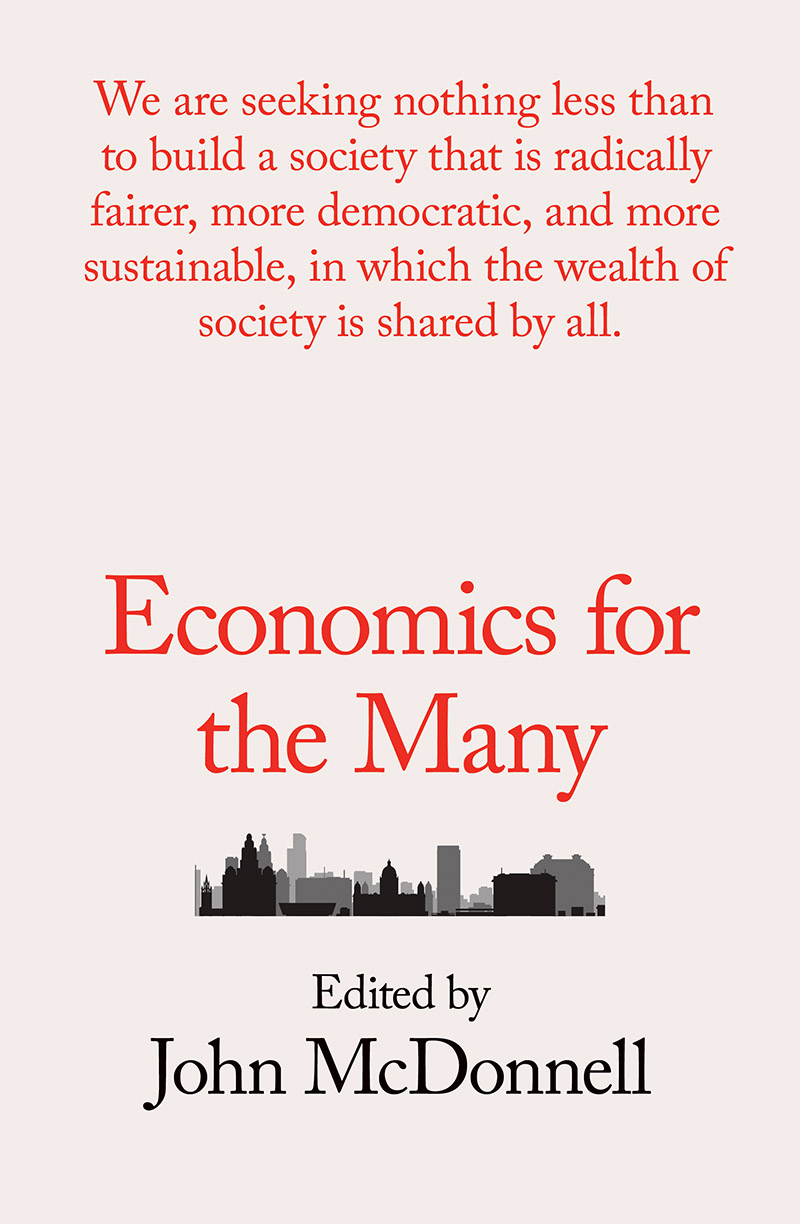 Here’s one question that most certainly needs asking will it be the economy, that shifts things in 2019, stupid? Yes, almost certainly. The collection Economics for the Many edited by John McDonnell is a platform for a comprehensive range of the kind of policies that will not only roll back austerity but in the process lay the foundations for a durable alternative. However any such project should also be about the quality of the lives we lead which is why Melissa Benn’s Life Lessons is such a vital companion volume. Making the case for a ‘national education service’ this book is an explicit critique of the managerialism that has monetised our children’s education. Of course the New Year is also a time to look back over the past twelve months. No one is better equipped to inject some biting satire into remembering the events of 2018 than cartoonist Steve Bell. If Steve’s latest collection Corbyn : The Resurrection, covering the years 2015-18 failed to make it as a stocking-filler my advice is to rush out and buy yourself a copy to be sure of a happier New Year.
Here’s one question that most certainly needs asking will it be the economy, that shifts things in 2019, stupid? Yes, almost certainly. The collection Economics for the Many edited by John McDonnell is a platform for a comprehensive range of the kind of policies that will not only roll back austerity but in the process lay the foundations for a durable alternative. However any such project should also be about the quality of the lives we lead which is why Melissa Benn’s Life Lessons is such a vital companion volume. Making the case for a ‘national education service’ this book is an explicit critique of the managerialism that has monetised our children’s education. Of course the New Year is also a time to look back over the past twelve months. No one is better equipped to inject some biting satire into remembering the events of 2018 than cartoonist Steve Bell. If Steve’s latest collection Corbyn : The Resurrection, covering the years 2015-18 failed to make it as a stocking-filler my advice is to rush out and buy yourself a copy to be sure of a happier New Year.
Of course neither Brexit nor Corbynism exist in a vacuum. Trump and the revival of the Democrats in the mid-terms, especially the breakthrough of new, young, Left candidates, was a 2018 Transatlantic expression of this. Where we go from Here is an account by Bernie Sanders of the two years since Trump’s election and what this means for the future of American politics. By the end of 2019 the next round of Democrats’ Presidential primaries will be fast approaching, making sense of the parallels and differences with our situation in the UK that Bernie helps reveal thus becomes increasingly vital.
Both Trumpism and Brexit have unleashed some ugly forces. The Chris-Howard Woods, Colin Laidley and Maryam Omidi edited collection#Charlottesville details one particular moment when a nakedly white surpremacist politics came up against militant resistance.
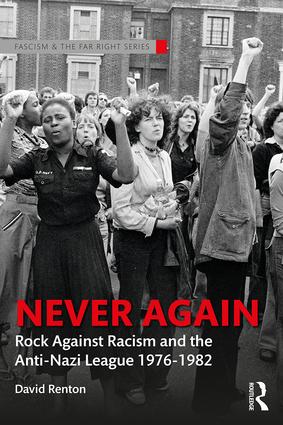 But for an insight into how to build a mass, popular and victorious movement around anti-fascism and racism there is no better book than David Renton’s latest, Never Again, a historiography of Rock against Racism and the Anti-Nazi League, 1976-1982. Roger Eatwell and Matthew Goodwin in their co-authored National Populism describe the resurgent Right from Trump via the German Afd, Liga in Italy, and Marie le Pen in France to the Brexiteer ultras with ‘Tommy Robinson’ in tow as a revolt against Liberal Democracy. A useful schematic for understanding the causes, it however fails to address what a progressive, in particular anti-racist, alternative might look like. A much better, and hugely original, starting point therefore is the one outlined by Will Davies in Nervous States. Utilising a wide range of both analyses and examples Will points to how reason has declined and feeling has come increasingly to take its place. He doesn’t patronise the latter but via an understanding of it reasserts the cause of a rational, radical politics properly equipped for the era in which we live. Brilliant. What kind of political organisation may be up to the task of not only resisting the rise of this populist-racist right but also reclaiming the cause of reason versus reaction? Paolo Gerbaudo’s The Digital Party is a wide-ranging, and international, survey of those parties that have gone furthest to embrace the organisational changes the new modes of communication demand of us all and as such is a compelling read for the future of politics.
But for an insight into how to build a mass, popular and victorious movement around anti-fascism and racism there is no better book than David Renton’s latest, Never Again, a historiography of Rock against Racism and the Anti-Nazi League, 1976-1982. Roger Eatwell and Matthew Goodwin in their co-authored National Populism describe the resurgent Right from Trump via the German Afd, Liga in Italy, and Marie le Pen in France to the Brexiteer ultras with ‘Tommy Robinson’ in tow as a revolt against Liberal Democracy. A useful schematic for understanding the causes, it however fails to address what a progressive, in particular anti-racist, alternative might look like. A much better, and hugely original, starting point therefore is the one outlined by Will Davies in Nervous States. Utilising a wide range of both analyses and examples Will points to how reason has declined and feeling has come increasingly to take its place. He doesn’t patronise the latter but via an understanding of it reasserts the cause of a rational, radical politics properly equipped for the era in which we live. Brilliant. What kind of political organisation may be up to the task of not only resisting the rise of this populist-racist right but also reclaiming the cause of reason versus reaction? Paolo Gerbaudo’s The Digital Party is a wide-ranging, and international, survey of those parties that have gone furthest to embrace the organisational changes the new modes of communication demand of us all and as such is a compelling read for the future of politics.
While some things change, others remain the same. The brutal, dehumanising treatment of the Palestinians by Israel continued in 2018. And this time the shooting by the Israeli army of unarmed protestors who joined Gaza’s Great March of Return offended even many of Israel’s hitherto staunchest supporters. But sadly still nothing seems to change. What a relief therefore to read Nathan Thrall’s The Only Language they Understand an unashamed search for a principled compromise, that won’t satisfy entirely either side but will most.
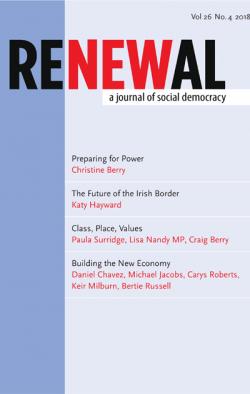 One of the welcome after-effects of Corbynism has to be the revival of a Left intellectual culture. One of the best examples of this is the journal Renewal.The latest edition in particular carries a superb piece by leftwing economist Christine Berry available as a free download ‘ how does a movement prepare for power.’ Compass has always confounded convention by combining the work of a think-tank with the ambition of being a campaign hub. Occasionally wrongfooted by the rise of Corbynism, the latest Compass publication The Causes and Cures of Brexit showcases their thoughtful strengths, not demonising the support for ‘Leave’ but seeking to understand its rationale, something too few even recognise. Also available as a free download, here. But my favourite popular-intellectual initiative of 2018 was the return of the political pamphleteer in the shape of Dan Hind’s excellent ‘New Thinking for the British Economy‘ series .
One of the welcome after-effects of Corbynism has to be the revival of a Left intellectual culture. One of the best examples of this is the journal Renewal.The latest edition in particular carries a superb piece by leftwing economist Christine Berry available as a free download ‘ how does a movement prepare for power.’ Compass has always confounded convention by combining the work of a think-tank with the ambition of being a campaign hub. Occasionally wrongfooted by the rise of Corbynism, the latest Compass publication The Causes and Cures of Brexit showcases their thoughtful strengths, not demonising the support for ‘Leave’ but seeking to understand its rationale, something too few even recognise. Also available as a free download, here. But my favourite popular-intellectual initiative of 2018 was the return of the political pamphleteer in the shape of Dan Hind’s excellent ‘New Thinking for the British Economy‘ series .
In the twentieth century it was 1917 that framed the efforts of those who followed in the footsteps of revolution. John Maclean by Henry Bell details Scotland’s flirtation with revolutionary politics while a special edition of New Formations marks the 2019 centenary of Rosa Luxemburg’s murder with a range of essays detailing her continuing influence and significance. The journal Twentieth Century Communism remains the unrivalled source of insights into 1917’s aftermath worldwide, the latest issue providing a rare focus on African communism. That aftermath is of course not unchanging, the first transformation we might date to the post 1956 New Left, chronicled in a brand new Socialist Register Reader with contributors ranging from Ralph Miliband and Jean-Paul Sartre to Rosana Rossanda and André Gorz.. And then a decade later a further convulsion, 1968, that in 2018 celebrated its 50thanniversary. The Voices of 1968 is an invaluable collection of original material from this most epic of years ranging right across Europe and the USA for its sources. Fiercely critical of the ‘official’ communist movement yet ardent defenders of its own particular interpretation of 1917, and Leninism more widely, John Kelly’s critical, yet not unfriendly, account Contemporary Trotskyism details the particular appeal of this version of a revolutionary politics.
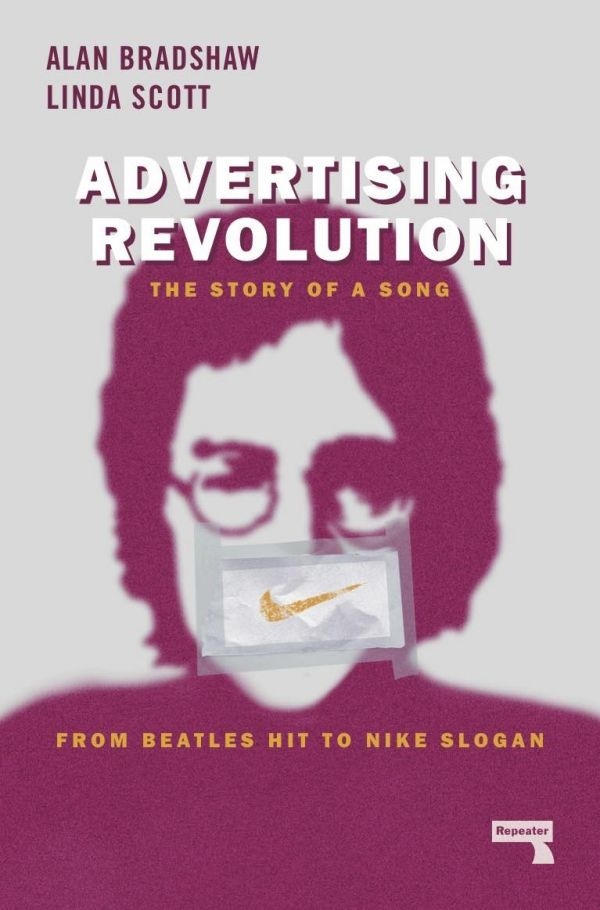 Of course ‘revolution’ in the era of late capitalism has come to mean all manner of things. Alan Bradshaw and Linda Scott’s Advertising Revolution accounts rather brilliantly for the word’s evolution via a Beatles’ hit into a Nike advert and a message even Trump embraces. Taking a different tack Oli Mould in Against Creativity demolishes all manner of claims to ‘liberate’ body, soul and mind via a corporatised version of the power of the creative. Neither critique eliminates the necessity for social change, anything but, both however force us to tackle a bastardised vocabulary as a barrier to making it happen.
Of course ‘revolution’ in the era of late capitalism has come to mean all manner of things. Alan Bradshaw and Linda Scott’s Advertising Revolution accounts rather brilliantly for the word’s evolution via a Beatles’ hit into a Nike advert and a message even Trump embraces. Taking a different tack Oli Mould in Against Creativity demolishes all manner of claims to ‘liberate’ body, soul and mind via a corporatised version of the power of the creative. Neither critique eliminates the necessity for social change, anything but, both however force us to tackle a bastardised vocabulary as a barrier to making it happen.
Versemongering in the cause of social change has a long and rebellious history. Dread, Poetry & Freedom by David Austin provides not simply a biographical account of Linton Kwesi Johnson but a political history of the context of his poetry.
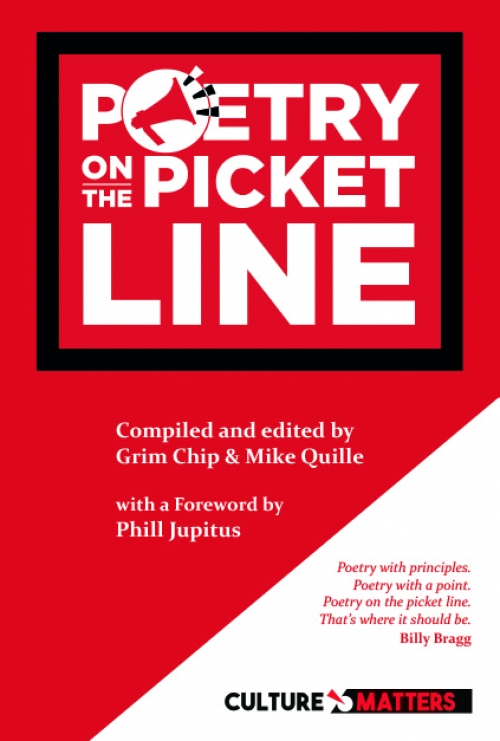 Fusing their poetry with street-level activism the ‘Poetry on the Picketline’ collective stand unashamedly in the tradition of LKJ’s campaigning performances. Their debut collection Poetry on the Picketline showcases what they bring to any protest party. At the core of much of this is an admirably do-it-yourself ‘We are all poets’ philosophy.To help us on our way, iambic pentameters and the like, there’s no finer how-to read than Michael Rosen’s classic What is Poetry?
Fusing their poetry with street-level activism the ‘Poetry on the Picketline’ collective stand unashamedly in the tradition of LKJ’s campaigning performances. Their debut collection Poetry on the Picketline showcases what they bring to any protest party. At the core of much of this is an admirably do-it-yourself ‘We are all poets’ philosophy.To help us on our way, iambic pentameters and the like, there’s no finer how-to read than Michael Rosen’s classic What is Poetry?
Undoubtedly the political novel of 2018 was Jonathan Coe’s Middle England. A funny, if sorry, tale of generational political drifts and divides set in the present and immediate past. An epic, read it before Brexit Day, 29thMarch, ouch!
For children’s reading in 2019 how about going back in time? Michael Rosen has edited a new collection of old socialist fairy stories Workers’ Tales and he’s also adapted an all-time favourite Dickensian tale, Oliver Twist, into a brand new story retold alongside his version of the original, Unexpected Twist. Or for something entirely of the present the third in Michael’s Uncle Gobb series Uncle Gobb and the Plot Plot is bound to be a 2019 favourite. Pushkin Press are past masters at hunting down children’s books from around the world for translation and republication. Two of my favourites from 2018 were Jan Terlouw’s Winter in Wartime a tale of a Dutch teenager in the wartime resistance , and Ele Fountain’s Boy 87a story of childhood, refugees, and survival.
For the practical task of planning the year ahead there’s no better tool than the hugely stylish Verso Radical Diary and Radical Planner the perfect New Year treat for the well-organised person in your life. Sadly, there’s no entry for a 2019 General Election date, not yet...
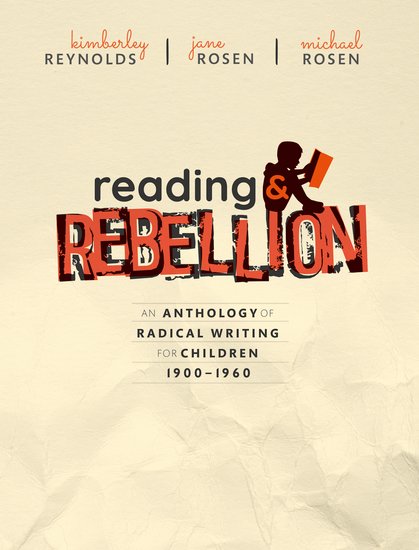 And my book of the New Year? Michael Rosen has collaborated with Kimberley Reynolds and Jane Rosen to produce a fantastically illustrated anthology of radical writing for children Reading & Rebellion. Stretching back to the start of the last century right through to the beginnings of the 1960s revolt this book is an absolute treat of a revelation for children, and grown-ups, of all ages. The perfect read for a New Year and a new generation who more than anyone else will help ensure a future where peace and goodwill is more than a seasonal marketing gimmick but instead at the core of human existence.
And my book of the New Year? Michael Rosen has collaborated with Kimberley Reynolds and Jane Rosen to produce a fantastically illustrated anthology of radical writing for children Reading & Rebellion. Stretching back to the start of the last century right through to the beginnings of the 1960s revolt this book is an absolute treat of a revelation for children, and grown-ups, of all ages. The perfect read for a New Year and a new generation who more than anyone else will help ensure a future where peace and goodwill is more than a seasonal marketing gimmick but instead at the core of human existence.
Note No links in this review are to Amazon, if you can avoid purchasing from this tax-dodging low wage employer please do so.
Mark Perryman is the co-founder of the self-styled sporting outfitters of intellectual distinction, aka Philosophy Football
Minding the depth and breadth
21.09.18
As Labour gathers for its annual conference Mark Perryman welcomes the variety of thinking a range of authors, new and old, are offering the Left at this vital time
Its taken a while but the past few months have seen a near avalanche of books seeking to explain, from a broadly sympathetic point of view, the phenomenon that is Corbynism. Liam Young’s Rise is certainly sympathetic to the phenomenon, Liam is an unashamed enthusiast and activist for the cause. Yet in seeking to understand the youthquake that underpinned Labour’s vote surge in 2017 he is hard-headed enough to recognise that this is the beginning, not the end of the story.
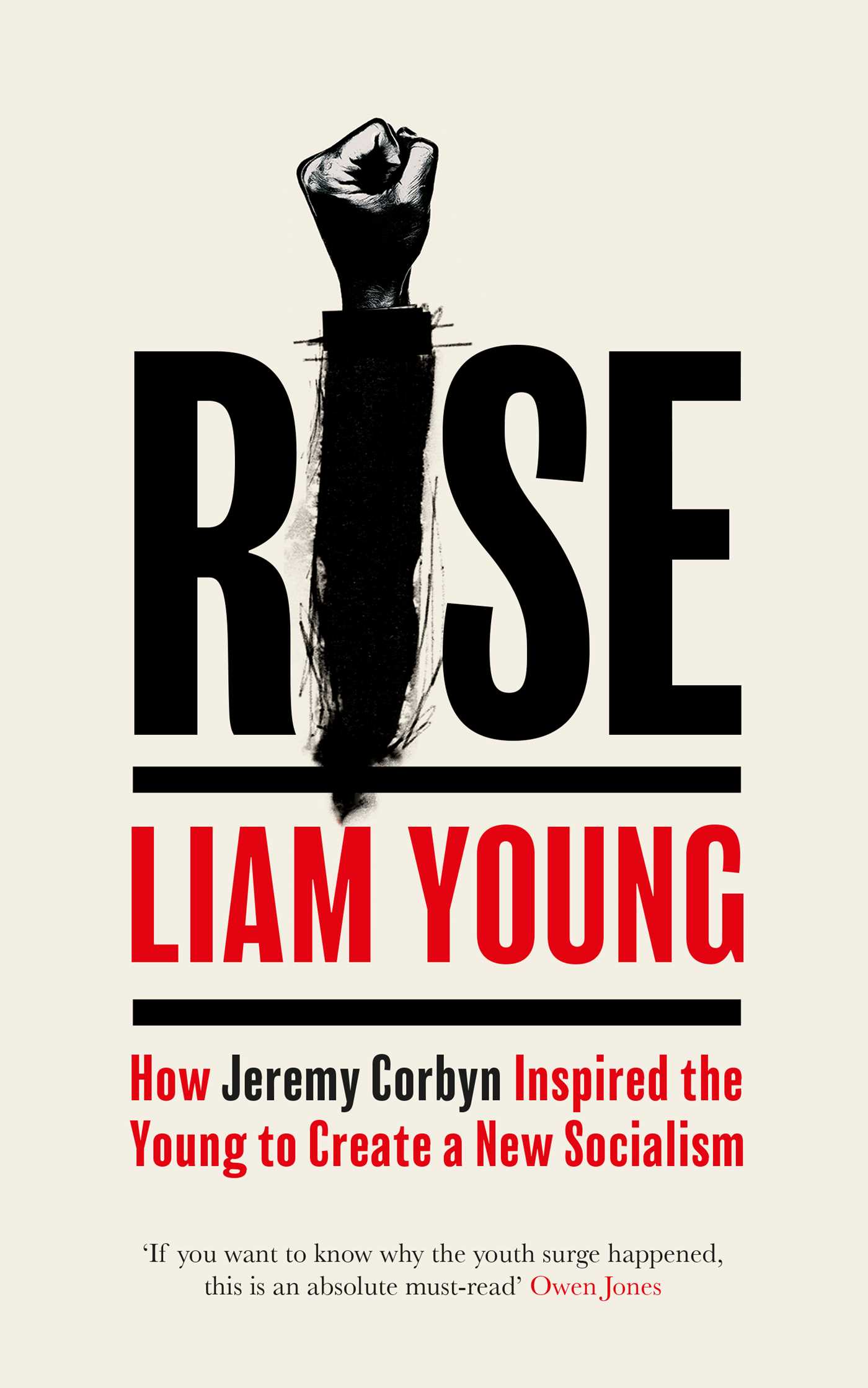
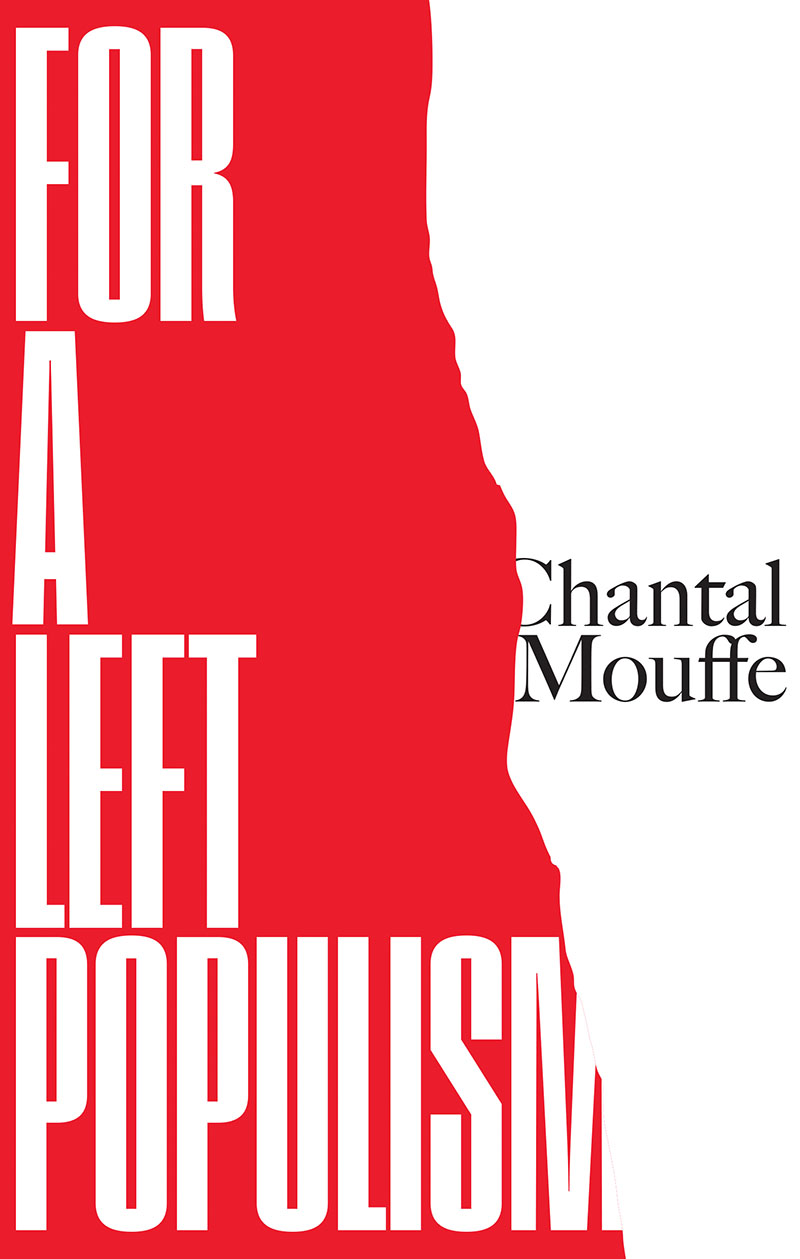
The Socialist Challenge Today by Leo Panitch and Sam Gindin comes from a different generation to Liam who is twentysomething whilst they are of pensionable age. This isn’t to pit the generations of the Left against one another, rather to point to an old legacy on which Corbynism builds and a new audience to which it appeals . This short book helps to bridge the gap with an argument that makes all the right connections. Culture Wars performs such a role in a different way, first published in 2005 at the height of Blair’s ascendancy the authors, James Curran, Ivor Gaber and Julian Petley, have added new chapters for this second edition to bring their discursive analysis of the vexed relationship between Labour and the media bang up to date. An outbreak of fresh thinking on what Labour might become is also hugely welcome. Chantal Mouffe’s For a Left Populism develops the ‘Hegemony and Socialist Strategy ‘analysis she first pioneered with co-thinker Ernesto Laclau for an era dominated by the rise of a populist Right, countered by what she believes should be a progressive Populist Left .
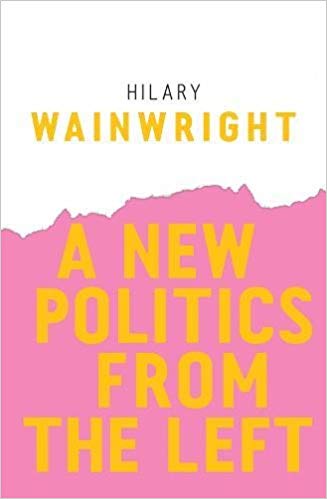
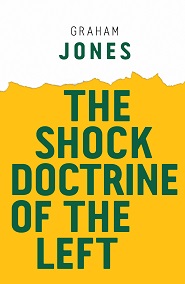
Could Corbynism turn Labour into such a party? A New Politics from the Left by veteran activist and thinker Hilary Wainwright argues for a not dissimilar project though rooted more in the forms and practice of social movements. Described as a ‘ toolkit for revolution’ in The Shock Doctrine of the Left author Graham Jones fuses this radical thinking legacy with the dynamics of new generation activism. It will be crucial to its enduring impact that the Momentum-led Labour Left doesn’t isolate itself from such extra-parliamentary thinking.
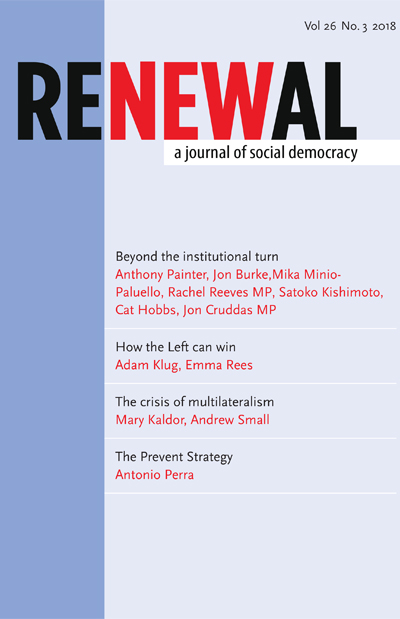
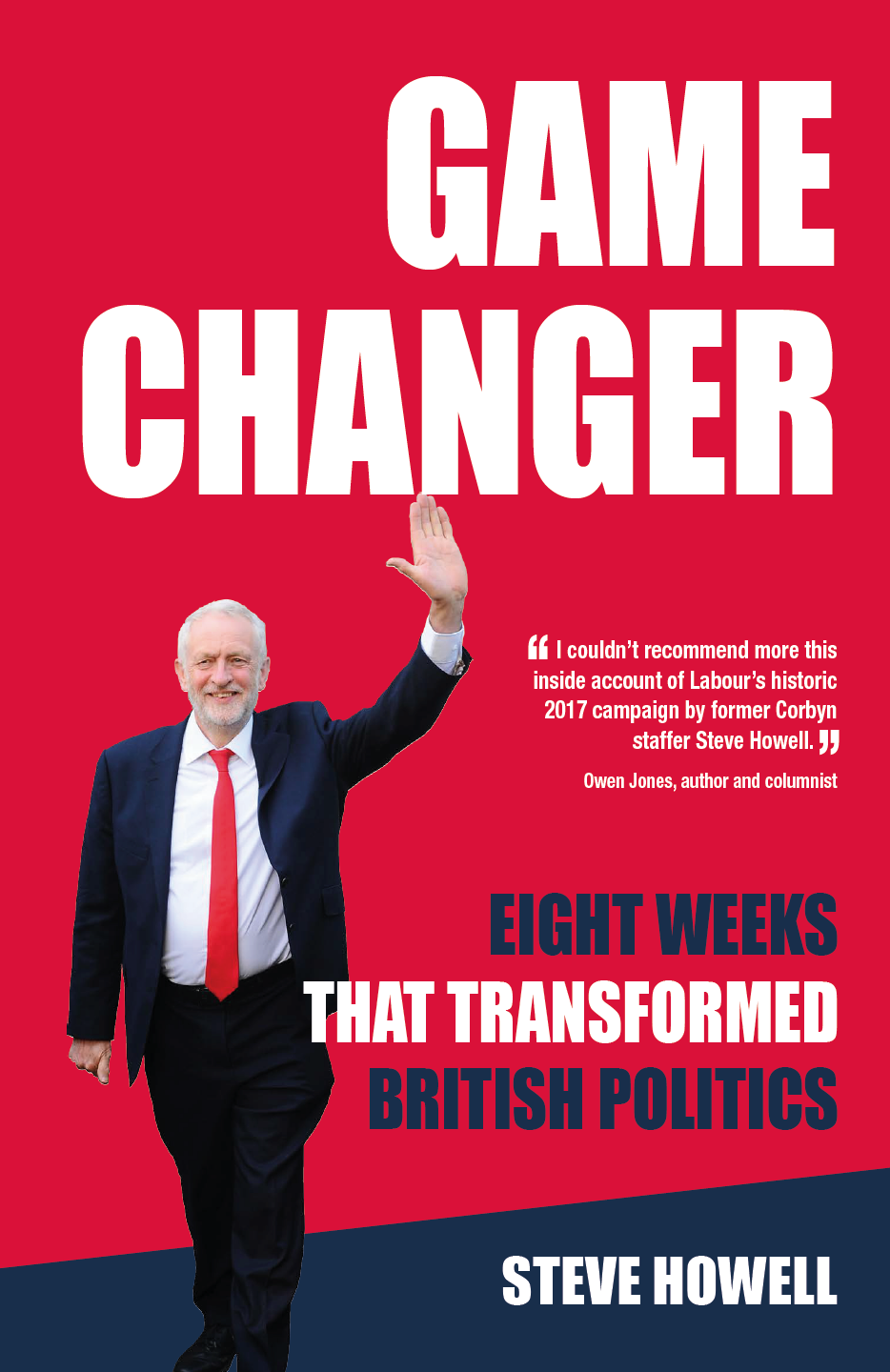
For a regular injection of just such bridge-building the journal Renewal is an essential read, the latest, a pre Labour Conference edition, features an outstanding contribution by former Momentum National Organisers Adam Klug and Emma Rees on Labour as a social movement, free to download here. For an insight into the political practice of Jeremy Corbyn’s leadership of the Labour Party, and in particular during the 2017 General Election campaign there’s nothing that comes close to Steve Howell ‘s Game Changer. Steve is not only acute politically on how Jeremy transformed the political landscape, in and beyond Labour , but also during the course of the eight weeks of the 2017 General Election campaign he was a key member of the leadership’s strategy group. Now out in paperback with a new postscript to account for the political fallout since 2017, an unrivalled read for Labour Conference, and after.
A politics rooted in the current vitality of the Labour Party requires a broad perspective on issues that matter. And few are more important than an understanding of changing class relations. A subject brilliantly chronicled in Charles Umney’s Class Matters . A failure to address such changes produces a trade union sectionalism defending jobs at any price and never mind socially useful production. The first and best example of the kind of trade unionism the latter could produce was The Lucas Plan as written up by Dave Elliott and Hilary Wainwright, now re-issued and it couldn’t be more timely. A small gripe, compared to the 1982 original (I know because I have one) both page and font size have been shrunk, making it more difficult to read than it needed to be. Another challenge to sectionalism is to lift our horizons beyond the national, which has always been the ambition of the annual Socialist Register collection, the 2019 Socialist Register ‘ A World Turned Upside Down’ confronts globalisation in the era of Trump vs the rise, and rise of China.
Issues, issues. After 1989 the dominant idea emerged to deal with each in turn rather than cling on to the remnants of a fast disappearing Marxist grand narrative. Just short of two decades later the 2008 financial crash took a big chunk out of that theory (sic). But of course the revival of a ‘new’ Marxism has been ongoing almost from the start. Michael Kidron was one of the finest practitioners of such thinking, his wide-ranging writing now collected together in a new volume Capitalism and Theory. Michael's writings are mainly drawn from the 1960s and 1970s. Bringing Marxism bang up to date, the much –acclaimed Mike Davis and his new book Old Gods, New Enigmas which deals with two key themes, the agency of change and the solution to a mounting environmental crisis. The latter may not have featured strongly in the original though Martin Rowson’s superb illustrated Communist Manifesto adaptation is perhaps the best ever way of finding out what insights it does still provide. But to reduce a politics of radical critique simply to the lexicon of Marxism is no longer enough, if it ever was. My favourite dose of theory is therefore provided by a huge volume of the late Mark Fisher’s writings K-Punk. Brutal oppositionalism combined with a razor-sharp wit, broken down into easy to digest chapter chunks, makes for critical thinking that is a joy and pleasure to read.
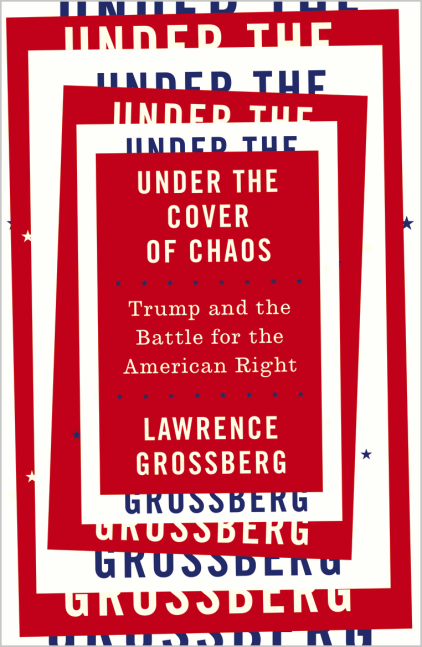
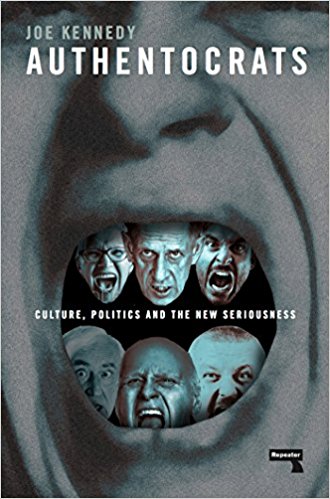
Ways and means of understanding the resurgence of a racist-populism in America, and elsewhere couldn’t be more urgent. Sarah Churchwell’s historical account of what lies behind it Behold, America is in turns hugely informative and absolutely terrifying. Sarah’s book focuses mainly on the neo-Nazi ‘America First ‘ movement of the interwar years. Alt-America by David Neiwert provides more recent post- 9/11 background and how that period was marked by the revival and eventual triumph of the American Radical Right. As an accompaniment Mike Wendling in Alt-Right provides an unrivalled digest of the various groups and ideas which peddle their ways and wares in and around Trumpism. But the best single read on this most unwelcome of subjects is Lawrence Grossberg’s Under the Cover of Chaos. Why? Because in one tightly-packed read Lawrence unpicks the conjuncture that produced this ugliness, not as an inevitable product of circumstance, rather an avoidable curse, and how. More than anything else Bernie Sanders’ bid to be the Democratic Party Presidential candidate represents what an alternative to Trumpism might look like and in that sense Crashing The Party, Heather Gautney’s inside story and analysis of the Sanders campaign, is the antidote required. And if all of this seems an Atlantic faraway two books from the increasingly impressive Repeater Books serve to remind us of both the global roots of rightwing populism and its global appeal too. Eliane Glaser’s Anti-Politics expertly situates this most unwelcome of phenomenons in a long-term project to demonise ideology, the authority of ideas and the role of the state. Joe Kennedy covers not entirely dissimilar ground in his new book Authentocrats via a wonderfully abrasive dissection of the false promise of ‘real people ‘ delivering ‘commonsense politics’ that populism depends upon for its appeal.
Criss-crossing these various manifestations of the Populist Right is an unabated racism and thus the resistance must likewise be characterised by an unrestrained anti-racism. The provocatively titled Why I’m No Longer Talking to White People about Race by Reni Eddo-Lodge has in the past year become pretty much a primer, and deservedly so, for a politics concerned with how privilege is highly racialised. Back to Black by Kehinde Andrews takes as its starting point what a modern and radical Black politics might look like. Be warned, Kehinde’s argument is that this demands a withering critique of pre-existing models of radicalism.
Since Jeremy Corbyn’s election as Labour leader the party’s claim to be an anti-racist party has come under sustained assault with critics describing it as institutionally anti-semitic, and thus racist. The debate, such as it is, serves to confuse legitimate criticism of Israel with anti-semitism. What this ignores is the rising opposition to the Israeli government within Israel itself, the global Jewish community and Western progressives including, but beyond too, the organised Left. All expertly described by Ben White in his book Cracks in the Wall. A very different, though complementary, approach is taken by Jamie Stern-Weiner in his edited collection Moment of Truth. Expertly guiding the reader through what he describes as the ‘toughest questions’ affecting the Israel-Palestine relationship Jamie has assembled a range of authors to respond to each question in turn . A complex format, that works brilliantly.
How can Labour re-engage with the tasks of being a party of anti-racism following the summer’s impasse over anti-semitism? By rooting its politics in a sense of place, that’s how. Afua Hirsch’s Brit(ish) a vital starting point on that difficult bit necessary journey of understanding. This is a book that fulfils the mantra of ‘the personal is political’ to illuminate both the challenges of, and oppositions to, racism. Akala’s Natives achieves something similar via a series of essays, some personal, others political, yet one never divorced from the other. Space, the nation, is of course a contested place, none more so than the histories that frame our present. Kill All the Gentlemen is the chilling title not of a murderous thriller but Martin Empson’s rather excellent history of the class struggle, sometimes violent, that has shaped the English countryside, a classic of the ‘hidden from history’ genre. Great (sic) Britain is of course made of many different places, and nations too. We are increasingly familiar with the tensions of a single unitary state containing four nations within one Union. Patrick Barkham further complicates such matters though with Islander his incredibly engaging trip around just some of the offshore islands and their communities which reveal this island place as an archipelago.
Such island(s) stories, criss-crossed with anti-racism and a rediscovery of the radicalism buried in those histories is a good starting point for a Left politics that matters. But the Left has a history of its own too that needs accounting for. Phil Cohen’s Archive That, Comrade is an affectionate and highly personalised, trawl through what that past can mean as we come to terms with the present, and the future too. For those lacking the kind of collection of artefacts Phil can boast a subscription to the journal Twentieth Century Communism will more than suffice. Unearthing in fascinating detail all manner of aspects of the legacy, the latest issue surveys how the centenary of 1917 was celebrated in places ranging from Belarus to Portugal. That was last year of course, 2018’s big Left anniversary was the 50thof ’68 though my impression is that it hasn’t been celebrated as widely as the 40thin 2008? The books however have been impressively thoughtful, including the republication of the original 1968 Mayday Manifesto. The Manifesto was a product of the British ’68, Mitchell Abidor’s May Made Me is an oral history of the infinitely more famous May events in France. But the appeal of ’68 as an historical moment was that it was everywhere, an impact powerfully recorded by George Katsiaficas in The Global Imagination of 1968. Of course like all histories ’68 is contested, sometimes bitterly so. Richard Vinen skilfully navigates that contest in his The Long ’68 and one thing he leaves readers certain of, it was a year that mattered.
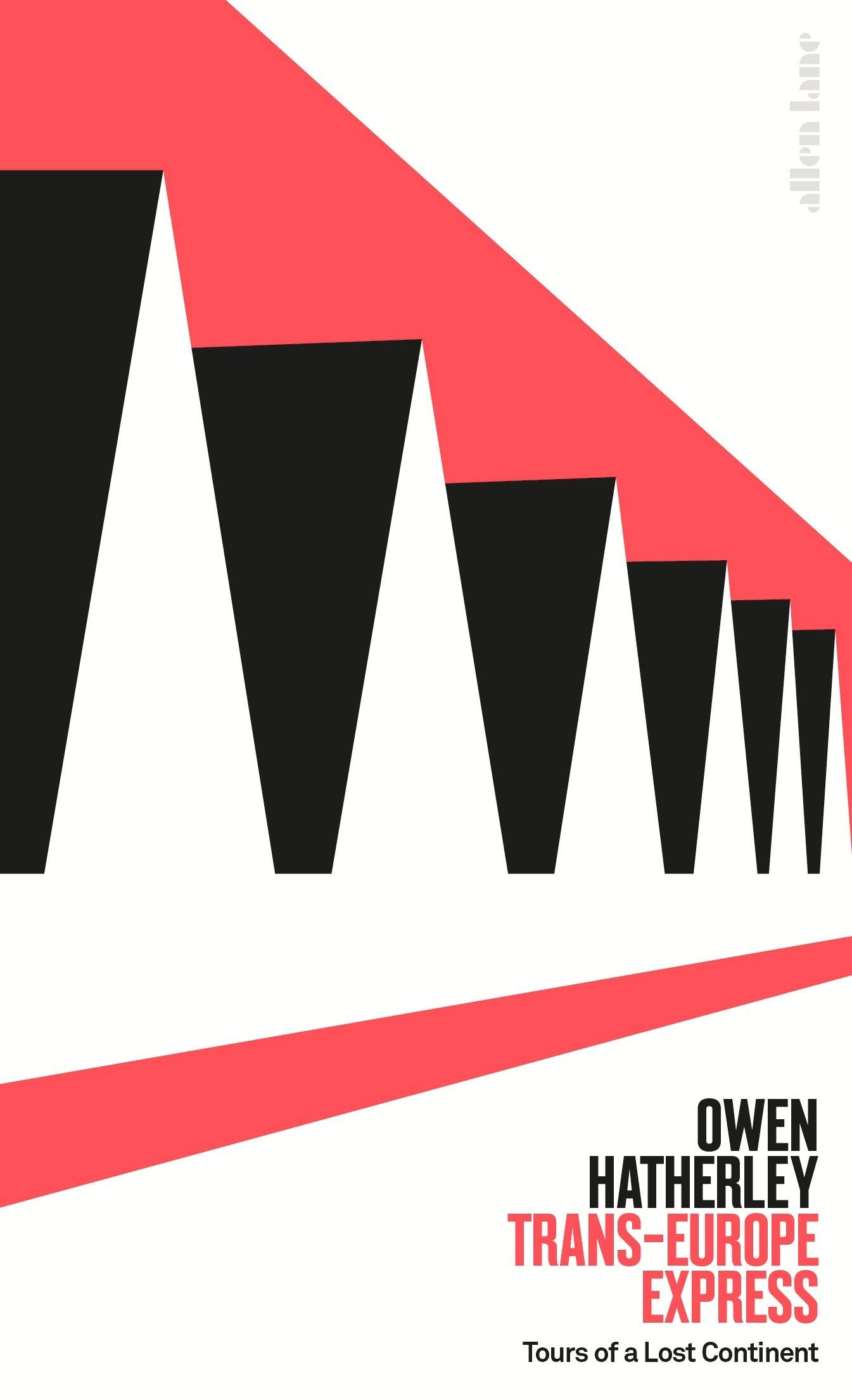
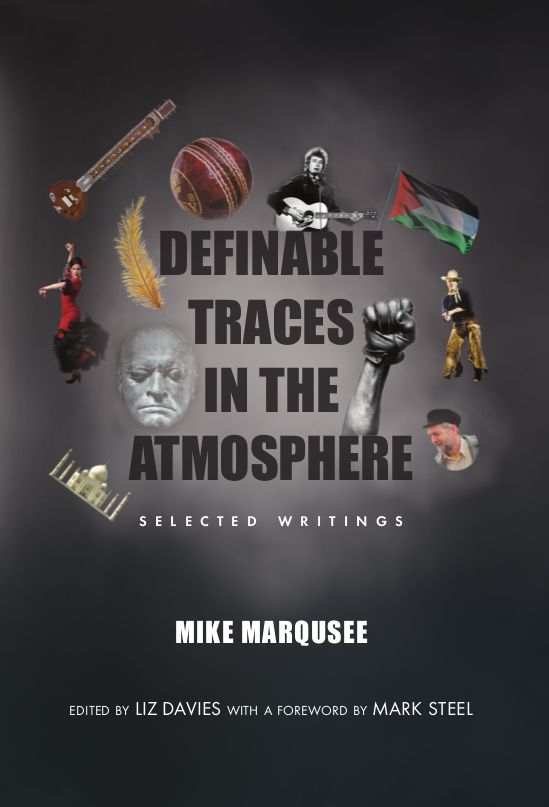
What made ’68 so special, and of such lasting significance was the seamless fusion of the political and the cultural. It is a mix the Left has always struggled to achieve yet when it does the possibilities are unlimited. Few writers come close to George Orwell in providing such a mix, writings that deserve to be visited and revisited over and over again. Not uncritically mind, John Newsinger’s Hope Lies in the Proles is both a sympathetic account of Orwell’s politics and lasting significance while being peerless in its deconstruction of the weaknesses and contradictions therein. Orwell would often use the device of a kind of travelogue to frame his political writing, of contemporary authors Owen Hatherley is the outstanding exponent of this style, combining his journeys of political exploration uniquely with incredibly well-informed explanations of the social construction of the architecture of the places he visits. Hugely prolific Owen’s latest books, Trans-Europe Express applies his writing mix to Europe in this precarious pre-Brexit moment while The Adventures of Owen Hatherley in the Post-Soviet Age has him traipsing across Russia to find the lived-in remnants of a bygone era and what has happened to them. My favourite writer of the political-culture mix of the current era however is Mike Marqusee, who so tragically passed away in 2015, the year his friend and longstanding comrade Jeremy Corbyn was elected leader of the Labour Party. There is absolutely no doubt Mike would have contributed hugely to the changes that then erupted in and around the Labour Party. It is enormously welcome therefore that a collection of Mike’s essays, Definable Traces in the Atmosphere has been published, perfect to remind those of us who knew him what we miss so much but perhaps more importantly for new, younger, audiences to discover his magnificent prose and acute political insight.


But of course such a political-cultural fusion can never be reduced simply to the written word, however well-written. The two latest titles in the excellent Four Corners ‘Irregulars’ series, Poster Workshop 1978-81 and Leeds Postcards illustrate the contribution the visual arts can make, superbly. The former catalogues the anarcho agit-prop look of a strand of the Libertarian Left which sought to flypost its way out of the nightmare of Thatcherism with graphic intent. The latter was slightly less ‘in your face’ but no less subversive, turning the humble postcard into a propaganda weapon, a very English version of cultural resistance, with lots of humour thrown in for good effect, and measure.
As for a soundtrack, to all this dissent while there are plenty of contemporary contenders I remain a tad old skool and still hanker after the music that helped to propel me into politics in the first place. How welcome therefore to read Jim Dooley’s Red Set not only the definitive history of The Gang of Four, but along the way explains why their music meant so much for the embryonic leftwing ideas of their dedicated followers, my younger self included.
For such a culture of radical intent we need poetry too, yes please. One of the finest practitioners of this purpose over the past 30 years or so, Benjamin Zephaniah, tells the story of how and why in his sparkling autobiography The Life and Rhymes of Benjamin Zephaniah. Reinventing this tradition for the present is the absolutely outstanding Potent Whisper, live he is electrifying, his collection The Rhyming Guide to Grenfell Britain a pocket-sized spoken word chronicle of our modern times. Poetry has both a very contemporary voice via Potent Whisper’s spoken word style and roots in our radical past. arise! by Paul Summers, a celebration of the Durham Miners Gala , is testament to all that.

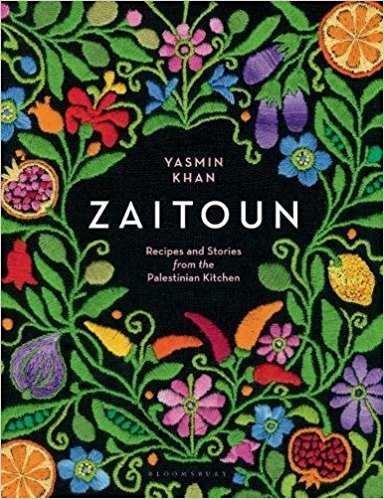
And not forgetting some fiction too, a form key to expanding the political imagination, and in recent years there’s been few better at that than the sublime Anthony Cartwright. His latest The Cut manages to fulfil the criteria of the fast-growing sub genre ‘the Brexit novel’ with an engaging structure that pits the two 'sides' of a bitterly divided Britain against each other via one particular relationship and the tensions it produces. Perfidious Albion by Sam Byers transports us a few years hence post-Brexit and it won’t surprise readers to find that Britain isn’t looking good, with the Far Right, social tensions, working and living conditions in decline. Never has the dystopian future looked more realistic, and likely. Oh dear, never mind a thrilling if depressing read.
But perhaps the most subversive way to transform the body politic is via what we cook for our table. Anybody who needs convincing of the potency of cookery as a political force should take a read of Yasmin Khan’s Zaitoun a beautifully produced book combining both stories and recipes from a Palestinian kitchen. For younger readers Clive Gifford and Jacqueline Meldrum’s Living on the Veg explains the politics and morality of vegetarianism for children accompanied by dishes to cook, their strawberry cheesecake a mouthwatering favourite of mine already.
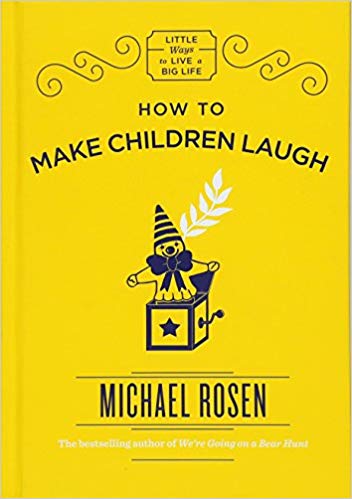
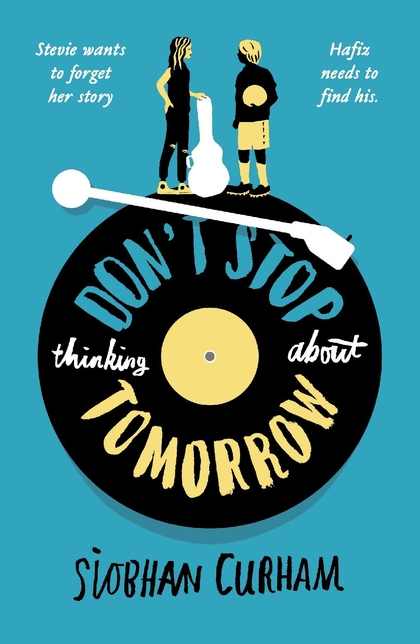
Which brings me rather neatly to childhood. My philosophy is simple, judge the progressiveness of any party or movement via the way it treats their children. If it can’t be bothered then why trust it on how it will treat others? It is the application of that excellent socialist-feminist maxim, ‘the personal is political’. The prime exponent of all this remains Michael Rosen, his latest book How To Make Children Laugh provides theory, practice and some very, very funny jokes. And for adolescent boys jealous of the girls and their Good Night Stories for Rebel Girls there is now a kind of companion volume by Ben Brooks Stories for Boys Who Dare to be Different which wears its values on the cover via the lovely strap-line ‘ true tales of amazing boys who changed the world without killing dragons.’ Siobhan Curham has written an absolute gem for young adult readers Don’t Stop Thinking About Tomorrow combines music, football, refugees and my hometown Lewes in East Sussex. First on the list for teen readers reading to stretch their horizons.
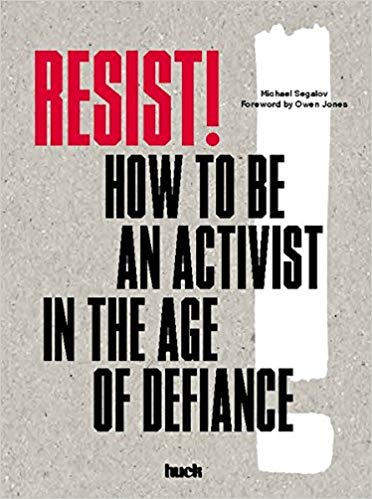
And my book of the quarter, the perfect Labour Party Conference, and afters read? I am never one to diss theorising, the historical, the cultural and more, but as someone else once noted ‘the point is to change it.’ In the search for practical outcomes from all this reading, and the ensuing fervour of debate Michael Segalov explores the art of making that change possible in his brilliant debut book Resist! How to be an Activist in the Age of Defiance. A practical how-to-guide for campaigners, stylishly illustrated, easy-to-follow and not so hard to put into practice either. Read it, act upon it, the Tories won’t know what’s hit them. Now that’s what I call a good read!
Mark Perryman is the editor of The Corbyn Effect and co-founder of the self-styled ‘sporting outfitters of intellectual distinction’ aka Philosophy Football
Le Maillot Gallois
31.07.18
C’est magnifique Geraint declares cycling fan Mark Perryman while wondering if this might spark Wiggomania Mk II.
Britain took 109 years to achieve its very first Tour de France winner in 2012. And now we can hardly stop winning it, with the single exception of Italy’s Nibali in 2014 (when Chris Froome crashed and was unable to continue) every year since. The French aren’t best pleased mind, ‘ Boring, Boring Team Sky’ amongst their less impolite responses.
Each of our winners has been different. Wiggins in 2012 was impeccably English, complete with RAF roundels mod-style on his helmet and a fondness for The Jam (the band, not what we spread on our toast). His victory was immediately followed by the London 2012 Olympics where he also triumphed in the Time Trial to win a Gold Medal to add to his Yellow Jersey. Pictured astride a throne at Hampton Court, where the race ended, Bradley with Wiggomania in tow was rampant with the Union Jack enjoying a late Cool Britannia renaissance. It was a moment when most of us thought Wiggo could do no wrong, until we found out via a jiffy bag that maybe he could.
Then along came Chris Froome, Wiggins’ number two in 2012 who didn’t much fancy playing second fiddle to anyone, least of all Wiggo. Born in Kenya, educated in South Africa, pays (or rather doesn’t pay) his taxes in Monaco. Never mind, he could climb a mountain on a bike like nobody else, never out of his saddle, twig-like arms outstretched with hands ‘on the hoods’ staring into the distance as if the gradient barely existed. Four wins in five years 2013- 2017, a legend in the making. The idea that in order to be a world-beating sports superstar an athlete needs the ‘personality’ to go with it is an unwelcome product of our celebritified era, but there’s not much doubt it helps. Froome’s achievements dwarf Wiggins but he was never a hit with the great British sporting public in the same way, most of whom don’t have much more than a passing interest in watching cycling. And so his near downfall via the over use of an asthma inhaler didn’t have quite the big hit of Wiggo and his dodgy jiffy bag full of we know not what. All it did was confirm those deep seated suspicions that the superhuman qualities of Grand Tour cyclists aren’t as naturally-produced as they might appear.
And now we have Geraint Thomas. Previously a super-domestique, always happy and willing to help his leader, as the cliché goes road cycling is an individual sport played by teams. His emergence first to lead Le Tour and finally win it shocked just about everyone, not least himself. Yes undoubtedly the suspicions linger, cycling will never entirely be rid of these but Geraint’s is a homespun story of a Cardiff kid who joined his local cycling club, went to a secondary school with superlative sports facilities, was talent-spotted at an early age, his is a rare ability that took him first to Olympic glory and then on to the road, grinding out the hundreds of kilometres mainly in the cause of more-celebrated others. He is in this regard the perfect combination of Wiggins’ personality and Froome’s athleticism on a bike.
So are we about to witness ‘Geraintmania’. If the Monday morning after the Champs Élysées triumph the afternoon before back, and in most cases front, pages are anything to go by we might like to think so. Handily sandwiched after World Cup 2018, Wimbledon and the British Open, before England’s test series against India and the start of the football season a British Tour de France win now receives the kind of blanket media coverage that before Wiggins barely existed. But somehow I doubt it.
Thomas’s backstory, but particularly his Welshness, adds something to the mix however. More understated than Wiggins but one to warm to in a way Froome never quite manages. Yet short of the BBC Sports Personality of the Year award, it is hard to imagine Thomas will be much in the news in the interim. Despite that as he revelled in his victory all the media-talk was of how he would inspire others to follow him in the same way he’d been inspired to get on a bike by Le Tour as a kid. This is the cruel myth-making of any sporting triumph. Its not killjoy-like to point to the social construction of sport, rather it is the only means of understanding how to change participation from sofa-watching to getting off that sofa. Cycling in this regard has a lot going for it. A means of transport and freedom for children, a way to spend time together as a family, a means to get to work or to do the shopping for adults. And all the while we can dream we are Geraint Thomas. Yet each of these opportunities are shaped by the socio-economic. Fewer children cycle to school than ever before. Safe cycling routes to enjoy for parents and children ambling together on two wheels remain few and far between. Towns and cities are ill-equipped to cope wih expanding demand to cycle to work and we have a rail system that actively deters the carriage of cycles. Don’t believe me? Visit any other European country and both the much better participation statistics and vastly more positive lived experience of cycling over there for cycling put Britain to shame. Yes there’s been a post-Wiggins increase in cycling but mostly its been those who’ve given up one sport, anecdotally marathon-running and golf are often cited, for another, there’s been next to no overall reversal in ever-declining physical activity participation rates. So well done Geraint, but I’m afraid to change all this its going to be down to another cyclist, over to you Jeremy Corbyn.
Mark Perryman is the co-founder of the ‘sporting oufitters of intellectual distinction’ aka Philosophy Football. Our Maillot Gallois T-shirt is available from here.
The Last World Cup as we know It
17.07.18
That’s what Philosophy Football’s Mark Perryman fears World Cup 2018 might prove to be
Illustration : Hugh Tisdale, co-founder Philosophy Football
Writing on the eve of Italia ’90 in the magazine Marxism Today Stan Hey had this gloomy prediction:
“ The global success of football has almost certainly sown the seeds for the game’s corruption. There is now a momentum which seems to be beyond control. Those of us who have retained an optimism for football’s capacity for survival and ability to re-invent itself are already checking our watches. It’s starting to feel like injury time.”
What seemed to prove Stan wrong were all those evenings with Gary Lineker as a nation watched football re-establish its popular appeal and never mind FIFA or those missed penalties in the semi-final defeat to West Germany either. 28 years later and an England team at last winning a World Cup penalty shoot out, reaching a World Cup semi for the first time since 1990, Harry Kane lifting the tournament Golden Boot award for top scorer, surely its scraping the limits of Left miserabilism to suggest Stan’s prediction is about to come horribly true? Afraid not, Russia 2018 might just prove to be as good as it gets.
As guardian of a global game one of the good things FIFA has done, yes really they do exist, is expand the frontiers of football. Of course they’re after markets rather than nurturing the worldwide culture of the sport but taking the World Cup to the USA in ’94, Japan and South Korea in 2002 and South Africa in 2010 were absolutely the right thing to do. And in the same regard Russia 2018 too, the first post-communist country to host the tournament. However each of these host nations had some kind of proven domestic football infrastructure and in addition they had all previously qualified for World Cups, not as hosts but in their own right. The Middle East was the next most obvious part of the planet to take the World Cup to, but not Qatar. Apart from the scandal of the lethally unsafe labour practices that underpin the building of the new stadia, the deaths of these construction workers reportedly number in the hundreds, this is a country that has never before qualified, or come very close. There’s no depth or breadth to football in the country. Football is a tool of Qatari soft-power diplomacy and that’s about it.
A Middle Eastern host, an Islamic host, yes but the most obvious candidate that ticks all the right boxes is so obviously Iran that it could not have ever have even been considered speaks volumes. Instead Qatar won the bid and then it was swiftly decided that because of the intense heat in the country during June-July the tournament would be switched to the autumn. Resistance to this can be a tad Eurocentric, after all the southern hemisphere nations play much of their football in their winter, our summer. But the reality is for the northern hemisphere what makes the World Cup so special is that is at the end of the season. A once every four years, with a Euro thrown in too in between, summer of footballing love. This is what more than almost anything else draws in the crowds way beyond the footballing diehards. November 2022 will disrupt all this, an early winter break from the promotion tussle and Champions League that will struggle for attention out of their huge shadow, a kind of after-show to what is so rooted in our sporting calendar, the season.
What has defied Stan Hey’s pessimism more than anything else is the way that popular consumption of a World Cup overwhelms its marketing and commercialisation. At home that’s the TV audience, not in the house but turning watching the games into a mass public spectacle. Whilst away from home the travelling fans magnify this even more. The latters requires a huge existing set-up of cheap hotels, airbnbs, campsites and the like. England’s support in Russia was relatively small – the interest will be much bigger next time - but the South Americans, Japanese, Mexicans however travelled in their tens of thousands. It’s them who turn the World Cup into a carnival outwith the control of either FIFA or the host nation authorities. It will be wonderful if such a thing happens in Qatar but if these facilities are lacking it won’t worsening still further the absence of our summertime festival back home.
Qatar threatens giving the World Cup’s gloriously revived popularity a knockback and things could get even worse at the 2026 tournament. What makes a tournament so special is the way the host nation defines it, often in the process defying the worst possible stereotypes. No, Russia hasn’t overnight become a worker’s paradise but neither is it the hell on earth that much of the media build-up presented it as. It was the Russian people, not Putin, who turned their country for the past four weeks at least into a place to savour not to fear. Not content with UEFA choosing to ignore the importance of a single host nation by spreading Euro 2020 over the entire continent FIFA has awarded World Cup 2026 to the joint bid of USA, Canada and Mexico undermining this crucial national identity of the tournament. A process both justified and amplified by the expansion of the competition to 48 nations. This will result in either dragging out the tournament longer than the current four weeks, meaningless group games when the group winners are already settled, tired legs and poor quality football thanks to shortened recovery time. Quite possibly World Cup 2026 will suffer from all three, which coupled with tis lack of a single defining host doesn’t bode well.
Of course hope must spring eternal but it’s not looking good and once the World Cup loses its huge and hard-won popularity then it may never recover. These forces which create such a wondrous sporting event on a global scale are both within and without the control of FIFA. But if it sacrifices that which it cannot govern, this global popular reach of football, to suit those within its control, FIFA’s organisational ends and commercial interests, then it will only have itself to blame.
The World Cup is the one truly global team sport event. It is the emotional investment in their team of an entire nation, multiplied 32 times across the planet which defines it. Thus, Russia 2018 revealed another seed to its eventual downfall. No South American team in the semis, when that happened in 2006 it was the first now with no South American winner since 2002 it is in danger of becoming a habit. No African team made it beyond the Group stages, just the one Asian team, Japan and they went out, if more than a little unluckily, straight away too. The globalisation of European football, with club teams stuffed full of imported South American and African talent doesn’t appear to be benefitting the teams of the countries where they’ve come from. Football’s version of colonialism, fuelled by neoliberal globalisation, that’s what it is beginning to look like with nobody in their right minds imagining FIFA will be much minded to do very much about it, their guardianship of the global game never being more important than the drive for profit. Sounds familiar?
Still at least for four glorious weeks it did at least look like, as the song goes, ‘football’s coming home’. Call me po-faced if you want but I have a problem with this particular notion. Don’t get me wrong I like a mindless football chant, especially one with a half-decent rhythm as much as the next fan. But England, home of football, coming to, what does that imply exactly? In World Cup terms we are anything but. England boycotted not only the first World Cup, but the next two as well. We finally decided to join in at Brazil 1950, promptly losing 1-0 to the USA in the Group Stage. And when we hosted the ’66 tournament the then FIFA President, Englishman Stanley Rous, thought it was acceptable that the entire continent of Africa merited one place. Unsurprisingly they told where he could stick that and refused to take part. If we insist on nominating football’s home there’s only serious candidate, France, the country who invented this most wonderful of tournaments, the clue after all is in the name of the trophy, Jules Rimet. But the point is that this tournament works because football’s home is everywhere, it belongs to every corner of the earth, the one truly global occasion in our lives.
It is the people, the fans and the players who make World Cups not one country nor FIFA’s either. And right now just like Pelé in 1958 and the following three tournament in Mbappé, un garçon des banlieues, France and the world has a player who epitomises that for the next few World Cups to come. Merci beaucoup,but handle with care.
Mark Perryman is co-founder of Philosophy Football, AKA ‘the sporting outfitters of intellectual distinction’. Our Liberté Egalité Mbappé shirt is available from here.
A National Reality Check
14.07.18
With no England World Cup Final to look forward to this weekend Philosophy Football’s Mark Perryman looks back in hope
Illustration : Hugh Tisdale
On the eve of World Cup 2010 a book with just about my least favourite title of all time, Why England Lose, was published. Never mind, it proved to be an excellent read though as anyone who can remember our last sixteen 1-4 thrashing at the hands of Germany the book didn’t exactly have a happy ending.
The book, now repackaged with a more sales-friendly title Soccernomics, regardless is a great read. The theory of England’s losses begins with what is now a fairly familiar recounting of England’s World Cup record which despite 2018’s glories remains at best quarter-finalists on the whole. We’ll have to go some in 2022 and beyond that to reverse that historic pattern. The points about recruiting from a narrow base of the population have moved on quite a bit too, with an admirably diverse squad. Cue the hurt shrieks of the ‘political correctness gone mad’ brigade. No, its just that if you want to succeed draw on the widest possible talent pool, are we doing enough to talent-spot youngsters starting out in the game from the sizeable Asian, Chinese and East European migrant communities? That’s the question youth football coaches and scouts should be asking themselves. The authors of the book, Simon Kuper and Stefan Szymanski, make an additional point however about our talent pool. Why do almost all England players come from a working class family background. In 2010 the only England player from a middle class family they found was Peter Crouch, his dad a creative director at an international advertising agency. My alternative view would be that this remains football’s enduring appeal, despite the gentrification of how it is consumed and marketed the players are working-class connecting it at least in part to its roots as the people’s game.
The main part of their thesis however was explaining World Cup success in terms of the victorious nation’s size of population and ratio of registered professional players to the that overall total (thus ruling out the likes of USA, China and India). England’ top eight status but not perennial semis, finalists or winners therefore seems about right. And in quasi-Marxist terms this amounts to an admirably materialist, if for England fans depressing, analysis. But what about Croatia, population 4.2 million, Belgium, 11.4 million. Croatia will be the smallest nation in a World Cup Final since Uruguay’s successes in 1950 and 1930, and bear in mind the World Cup was a very different competition back then too.
During the course of this tournament Simon updated his analysis to prove an additional explanation for the apparent Belgian anomaly:
“ Most of today’s Devils (the nickname for the teams is The Red Devils) have been globalised since their teens when the emigrated to learn football in nearby countries. The are multilingual and largely above the Flemish-Walloon divide.”
A multicultural team not afraid either of being cosmopolitan about where it both learns and plays its football. Something similar can be said of Croatia. Far more mono-cultural than Belgium’s squad they are nevertheless smart enough to recruit from players whose families became refugees from the Balkans war but who’s sons want to play for their homeland. Croatian international Ivan Rakitic who grew up in Switzerland being perhaps the most obvious example. But Croatia’s starting eleven also included homegrown players who now turn out for the top European teams, Real Madrid, Juventus, Inter Milan. And Liverpool.
Again it’s a materialist analysis that makes a lot of sense. English players who stick at home, in a top division that confuses being the richest league in the world with being the best, lack that dimension, pitting themselves against different styles, subjecting themselves to coaching and management approaches they might otherwise not experience, learning to live in another country, picking up a foreign langue, or three. Too many foreign players and managers over here? Until our England internationals choose to leave the comforts of home thanks to them its the closest thing we have to the globalised footballing cultures other nations benefit from.
That’s the materialism accounted for. We could add the good fortune of the almost entire absence of injuries and suspensions. England have never been so lucky on both fronts before but lets be generous and put that down to good planning, better sports science than previously and an improved disciplinary record.
It is the other key factor that is much harder to root in any version of materialism. The luck of the draw. Every single time before England finishing second in their group condemned them to a really tough quarter-final and in some cases almost as tough an opponent to beat at the last sixteen stage too. In Russia after finishing second in their group the combined might of former winners Brazil, Argentina, France, Spain and Uruguay plus reigning European Champions Portugal were all in the other half of the draw and couldn’t be played until the Final. When we faced teams in our half with half-decent rankings, Colombia and Croatia, we either failed to beat them over 120 minutes or lost. It is hard to imagine England will face such a fortunate draw for a long time to come. And if Germany, Italy and the Netherlands get halfway close to restoring themselves to former glories the task becomes that much harder again.
Is this a case therefore of just enjoying England while it lasts. No, not all. A young squad, a manager with a sense of purpose, together with the fans this summer we’ve all written our own history. Always looking backwards, to ’66 and ’90 not forwards, more than a bit laid to rest. If we’re looking for a 2018 legacy this surely is the one to build on, one we can affect. No more looking nostalgic as our national comfort blanket, one that is invariably, and uncomfortably, confused with an imperial, a martial, and racialised history. The past after all is a different country. Instead for the last four and a bit weeks we’ve had eleven named people and their best, with us chering them on, to provide the meaning for our imagined community of millions. Now that’s what I call home.
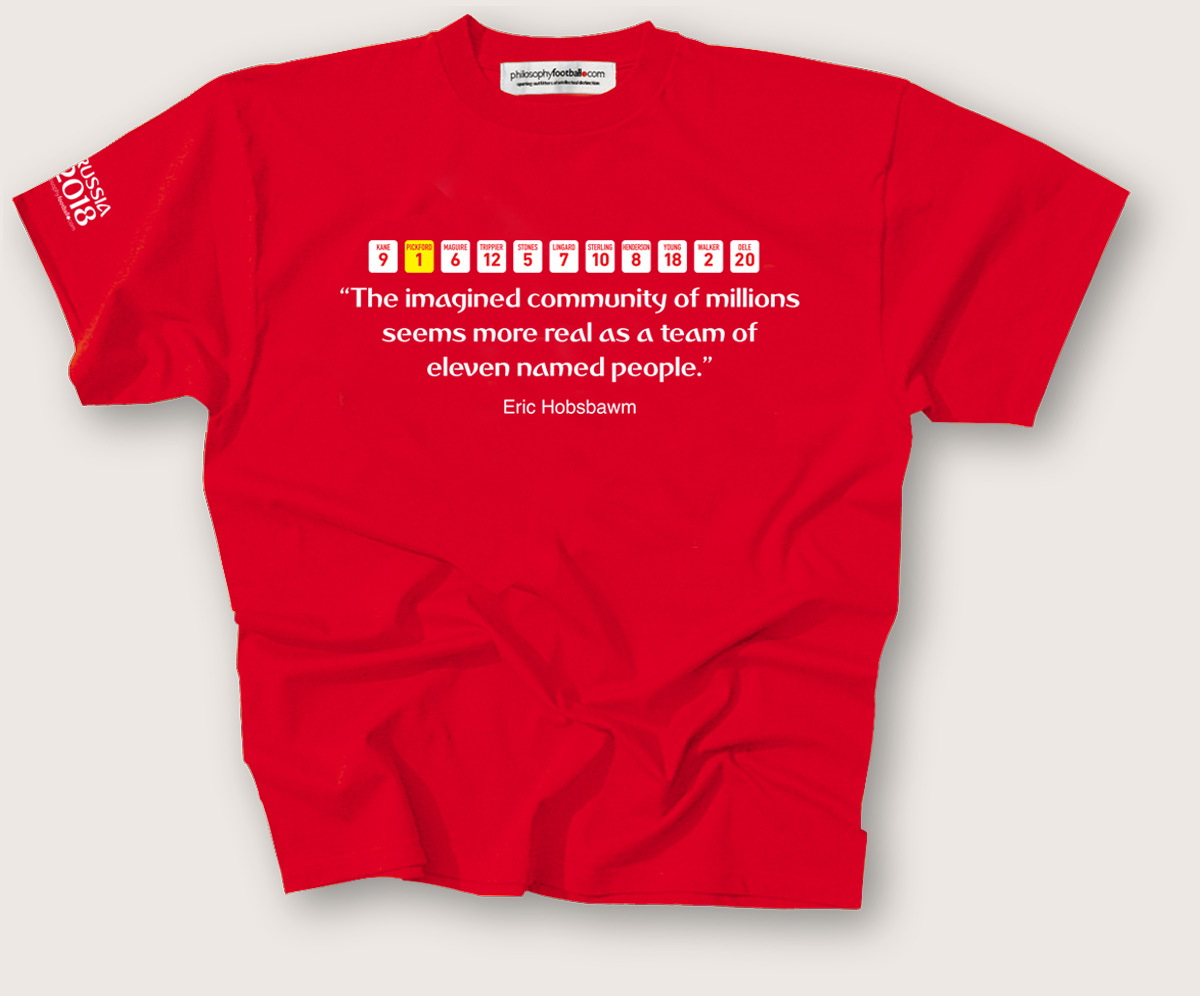 Mark Perryman is co-founder of Philosophy Football, AKA ‘Sporting outfitters of intellectual distinction. Our ‘imagined community of millions;’ T-shirt is available
Mark Perryman is co-founder of Philosophy Football, AKA ‘Sporting outfitters of intellectual distinction. Our ‘imagined community of millions;’ T-shirt is available
from here.
Fields of Play
11.07.18
A first England World Cup semi-final for 28 years has Philosophy Football’s Mark Perryman joining the dots between pitches and politics.

It seems like only yesterday that ‘Football’s Coming Home’ became England’s National Anthem, an England shirt our national dress and not being able to move for St George’s Cross Flags. 2018 is fast becoming the new ’96 and English hope springs eternal that this time there might be a happier ending too.
Football’s coming home, one of those fronting it is comedian and writer David Baddiel, born in New York, his Dad Welsh, his mum a refugee from Nazi Germany, Jewish. Neatly summing up the patchwork of identities most modern, and some ancient, icons of Englishness are constructed out of. When it was originally written the song was wrapped up in the mildly imperious idea that England is somehow the home of football, a message that framed the disastrous English bid to host World Cup 2006, an arrogance that resulted in a humiliatingly low vote, and irony of ironies who got it instead? Germany.
Twenty-two years later the song seems more of a joyful lament than back then. Willing the return of the World Cup to good old blighty’s shores, its been away for too long, far too long. Oh, and its got a catchy and easy to remember chorus, that helps.
Does any of this matter very much? Well actually in the big wide world outside of both Westminster and Planet Placard yes it does. The South African academic and activist Prishani Naidoo wrote ,whilst her country was hosting World Cup 2010, of football ; “ The field of play it produces stretches far beyond the boundaries of its goal posts and pitches – fields of play that sometimes bring into question the ‘taken-for-granted’, ‘the natural’, the ways in which ‘we are meant’ to be in society.” For many the most important event this week will be the very public falling out of Tory Ministers with each other over Brexit. For others the event they are most looking forward to is Friday’s march against Trump. Both, of course are hugely important but for millions of others it is all about England v Croatia and the sniff of a World Cup final appearance for the first time in 52 years.
Yes some have a stake in all three but a Left that aspires to be popular should be effortlessly making the connections, joining the dots between Wednesday night’s ‘field of play’ and that process of ‘bringing into question’. The football writer Barney Ronay has located the link superbly well ;
The FA neither owns nor controls the mechanics of grassroots football. It has no power to dictate what Premier League clubs do with young players. It isn’t the nation’s PE teacher. It is instead something of a patsy. One of the FA’s significant functions is to act as a kind of political merkin for the wider problem. Which is, simply access for all: the right to play, a form of shared national wealth that has been downgraded by those in power for decades.
These extremely wise words were written several years before World Cup 2018, rather, following yet another earlier-than-we-hoped-for exit . The first part of Barney’s argument has been addressed as far as they could by the FA. Unable to regulate the Premier League clubs treatment of young players they have invested heavily in their own under-age group teams with startling success. The core of Southgate’s squad have been playing for England junior teams since their teens, travelling away to tournaments, learning to get on with each other as well as play alongside each other. And of course Southgate for a period was their Under 21s manager too, with a watching brief on younger squads as well. His has proved an inspired appointment but one that within the constraints of free market football went alongside the FA re-asserting its role as a governing body, the game’s regulatory authority, if you like.
But the second part of the argument remains as sharply evident now as ever. Those England players who before the tournament revisited the primary and secondary schools where they first learnt their football would have found those institutions with hard-pressed PE departments, in plenty of cases school playing fields have been sold off, those that remain struggle for the finances to be kept properly maintained. The youth football set-ups where these players developed their talent before being spotted for bigger things, struggle to find public pitches to play on and are deprived of the resources to build their own facilities. This is the austerity-driven reality for all those inspired by Russia 2018, young and old, to lace up their boots and drag themselves away from the sofa, sport as not simply something to watch, but to play.
A radical commonsense politics connects the popular with the political. So here’s an idea. On the day of England’s biggest game in 28 years Jeremy Corbyn gives Brexit a rest, leaves the Trump-bashing until he arrives on our shores tomorrow and instead pops down his local park. Not to make the rather trite current Labour party offer of a national (sic) holiday should England win the World Cup, tho’ this does have the added bonus of getting the Scots and Welsh behind the team. Nor a New Labour style photo-opportunity, y’ know the one Blair doing the keep-uppies with Kevin Keegan. No, to make a serious-minded speech about playing-fields, their selling off by successive governments and how a politics of football for all is how we make this most wonderful of World Cup summers actually mean something. 1-0 to Labour and England to win. That will do me nicely thankyou very much.
Mark Perryman is the co-founder ofPhilosophy Football, aka ‘sporting outfitters of intellectual distinction’, their World Cup and other T-shirts can be found here
Here we go, again
06.07.18
With a World Cup quarter-Final on Saturday Philosophy Football’s Mark Perryman dares to hope for England

For fans of a certain age we’ve been here before. World Cup 2002, England v Brazil in the quarters, 1-0 up then first Rivaldo equalises on the cusp of half-time before just after the break Ronaldinho scores what proved to be their winner. English hopes dashed, never mind, no disgrace going out to the eventual champions.
Four years later and it’s all about Rooney’s sending off, Ronaldo’s knowing wink to the Portuguese bench and another dismal English showing in a long list of the like in penalty-shoot-outs. Unbeaten with 10 men over 120 minutes, this one we could put down to a mix of bad luck and continental skulduggery.
In between, Euro 2004, England v Portugal. Rooney this time is tearing the opposition to shreds, goes off injured, and after battling their way to a 2-2 draw it was yet another English exit on penalties.
That little lot is all of twelve years, and more, ago now. Sven was the manager, Becksmania ruled, Michael Owen, who’d burst on to the international scene four years earlier at France ‘98 was world-class, when he wasn’t injured, and the teenage Rooney at Euro 2004 looked to be even better. The latter, when compared to his contemporary Ronaldo, never came close to fulfilling his world-beating potential however. Unarguably his first tournament, Euro 2004, was also Wayne’s best. As for Owen, injuries robbed him of his best moments, at World Cup 2006 going off injured in the first minute of England’s final group game versus Sweden effectively his most unfortunate of international swansongs.
Sven did his magnificent best to manage England to exceed all our best expectations. The two previous World Cups we’d gone out at the last sixteen stage, ’98, and failed to qualify, ’94, at Euro 2000 we’d exited at the Group stage. Sven’s was the era of our last so-called golden generation yet the team was fatally unbalanced by the overwhelming popular fixation with Beckham and all that Becksmania brought with it. Without being privy to their respective changing rooms it’s hard to be certain but every impression is that Southgate’s 2018 squad has a collectivity that England 2002-2006 sorely lacked.
The team being greater than any single individual has an echo in an era before the consumption of football, and just about everything else, wasn’t soaked in celebritification. Of course this isn’t entirely new, before Beckham there was George Best after all, aka ‘the fifth Beatle’. But perhaps the better reference point is the last time England won a World Cup quarter-final, Italia 90. The huge TV viewing figures, the street celebrations, an England football shirt as our national dress, days organised around World Cup kick off times, it had the lot. And Gazza. Only five years earlier after the Bradford Fire Disaster The Sunday Times had infamously described football as “ a slum sport played in slum stadiums increasingly watched by slum people, who deter decent folk from turning up.” Thanks a bunch. English club sides were banned from European competition indefinitely following the lethal trouble at the Heysel Liverpool v Juventus European Cup Final, the post Hillsbrorough disaster presumption was that the fans were guilty, its easy to blame the Sunand their ilk for the awful coverage but people at the time largely believed the kind of stuff, the paper printed. Football looked dead on its feet, and for 96 Liverpool fans at Hillsborough that was precisely the tragic consequence.
Italia ’90 transformed how football was perceived. Any trouble our fans were part of at the start of the tournament entirely forgotten thanks to evening after glorious evening with Gary Lineker. And to top it all, by the end of the year, thanks principally to the catastrophic unpopularity of her Poll Tax, Thatcher was out. But Thatcherism, and the Tory government, remained intact. What Thatcher had created during her 11-year Premiership was a neoliberal consensus founded on the market being king and de-regulation the swashbuckling way to manage both economy and society. Football wasn’t immune to any of this, the much fabled ‘people’s game’ as a description of the way it was run, a quaint fairy story to reassure ourselves with. In the space of jut two years following Italia ’90 the top division of the English game had effectively been sold off by the sport’s governing body, the FA, de-regulated in other words. The broadcaster’s billions would govern the sport’s elite level best interests from now on, while a similar sell-off of the European Cup to become the Champions, or more accurately rich runner’s ups, League would distort the domestic game still further towards the interests of the wealthiest clubs and their transnational ownerships. Free market football was the direct consequence of England’s Italia ’90 success.
One England World Cup campaign won’t change all that. Italia ’90 reignited the popular appeal of football, despite the preceding tragedies, the hostile attitudes, the attendant hooliganism, and worse, only for this to be marketised. Perhaps Russia 2018 might help remind us of the possibilities of a game liberated from what it has become. No single club can ever achieve this in the way a national team can. No club has the universal appeal across our nation that England has. And none will spark the flying, wearing, painted on a face of St George either. This is a mass, popular culture we dismiss, but also build up, at our peril. Some such as Jason Cowley in this week’s New Statesman see it as the reawakening of a progressive English nationalism or as he waggishly dubs it, “Gareth Southgate’s England.” Others such as Stuart Cartland , reflecting on England’s penalty-shoot out triumph for Culture Matters dismisses an over-enthusiastic draping of the progressive in St George “ I can’t help but dread how any English success only serves to embolden a sense of Englishness of the Conservative right.” The point surely though is to mobilise our resources of hope to shift the balance from Stuart’s pessimism towards the most progressively possible of Jason’s optimism. Both views are right, and both wrong.
Jim Sillars, then an SNP MP, put it way back when Scotland was qualifying for World Cups that football produces “ninety-minute nationalists”. Now, with Scotland amongst the international footballing also-rans, Scottish nationalism is an infinitely more potent political force than in the 1980s and 1990s, a civic nationalism that is broadly social-democratic too. Political forces and circumstances shaped this, not Scottish football’s Tartan Army. Scottish Nationalism is about a place, not primarily about race, it isn’t hung up on the martial and the imperial in the way Little Englandism is, with no sign post-Brexit of getting over that, at all. If football can provide a space for contesting such ideas then why on earth forsake, or even worse surrender, that space. A Left politics which ignores that opportunity is surely making a huge error. The question shouldn’t be whether but how. A win on Saturday against Sweden as good a place to start as any other. C’mon, and unapologetically, England.
Mark Perryman is co-founder of Philosophy Football, aka ‘sporting outfitters of intellectual distinction’ our World Cup and other T-shirts can be found here
- The Death of Innocence
27.12.25 - Thatcherism Today
04.10.25 - Top Ten Books to Understand Labour Conference
26.09.25



